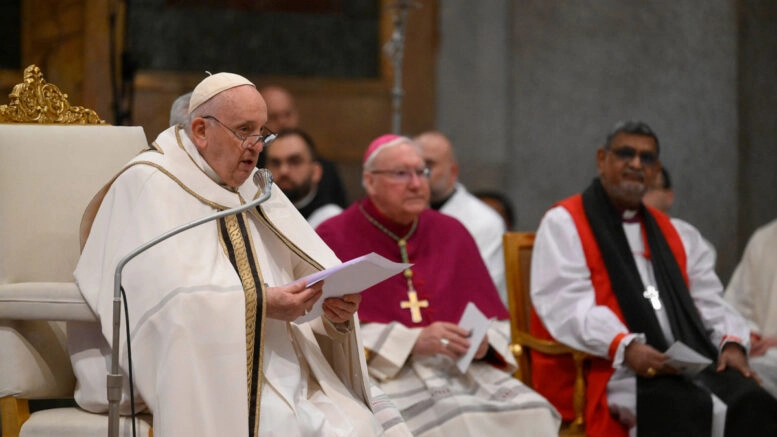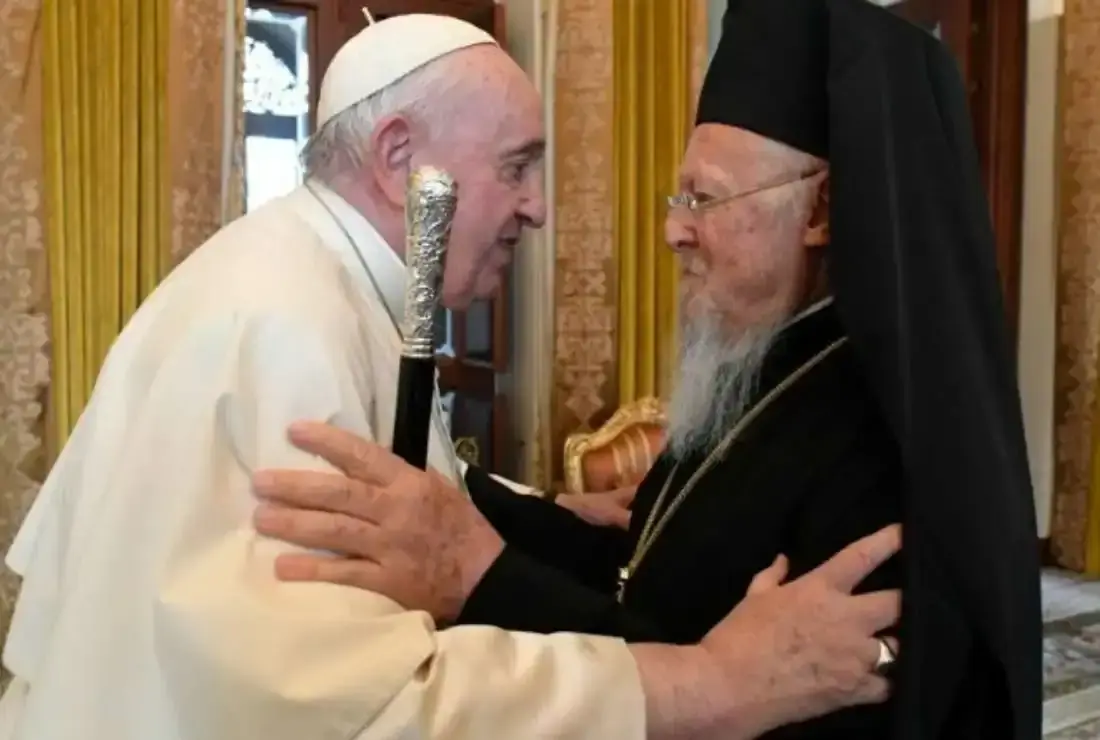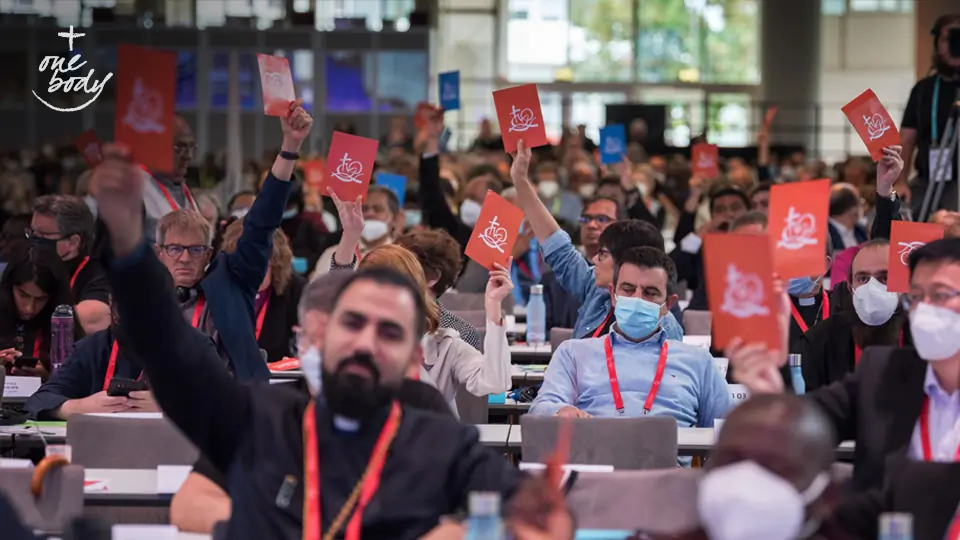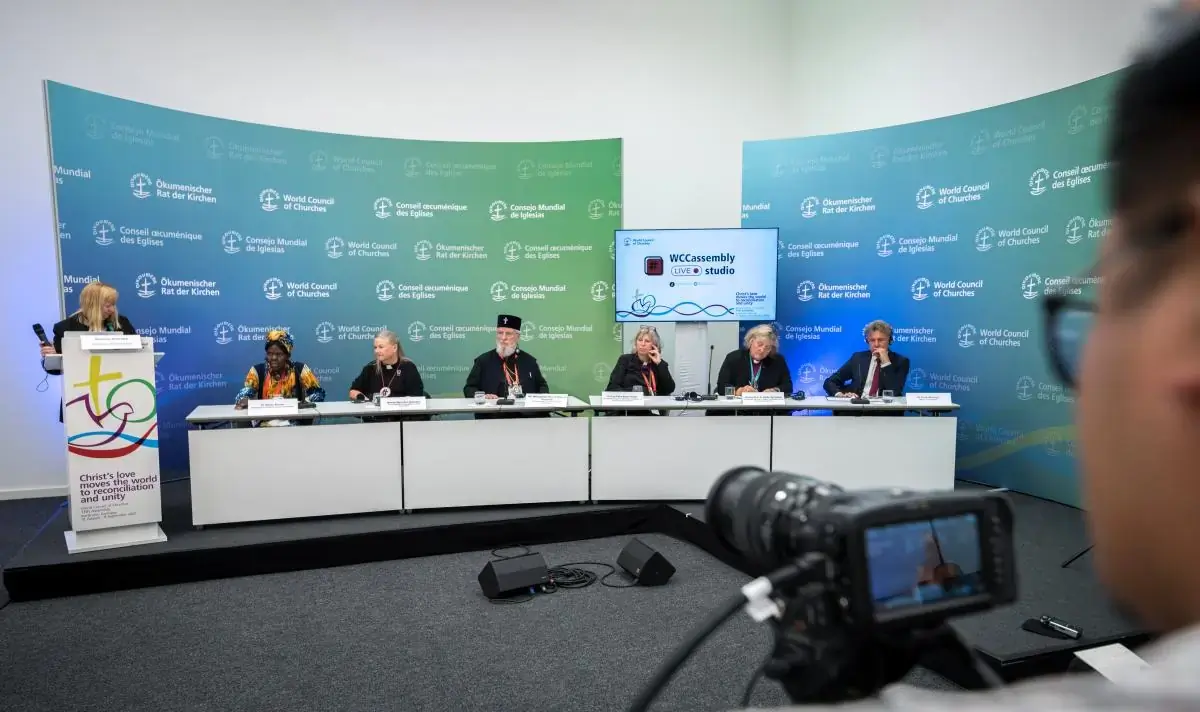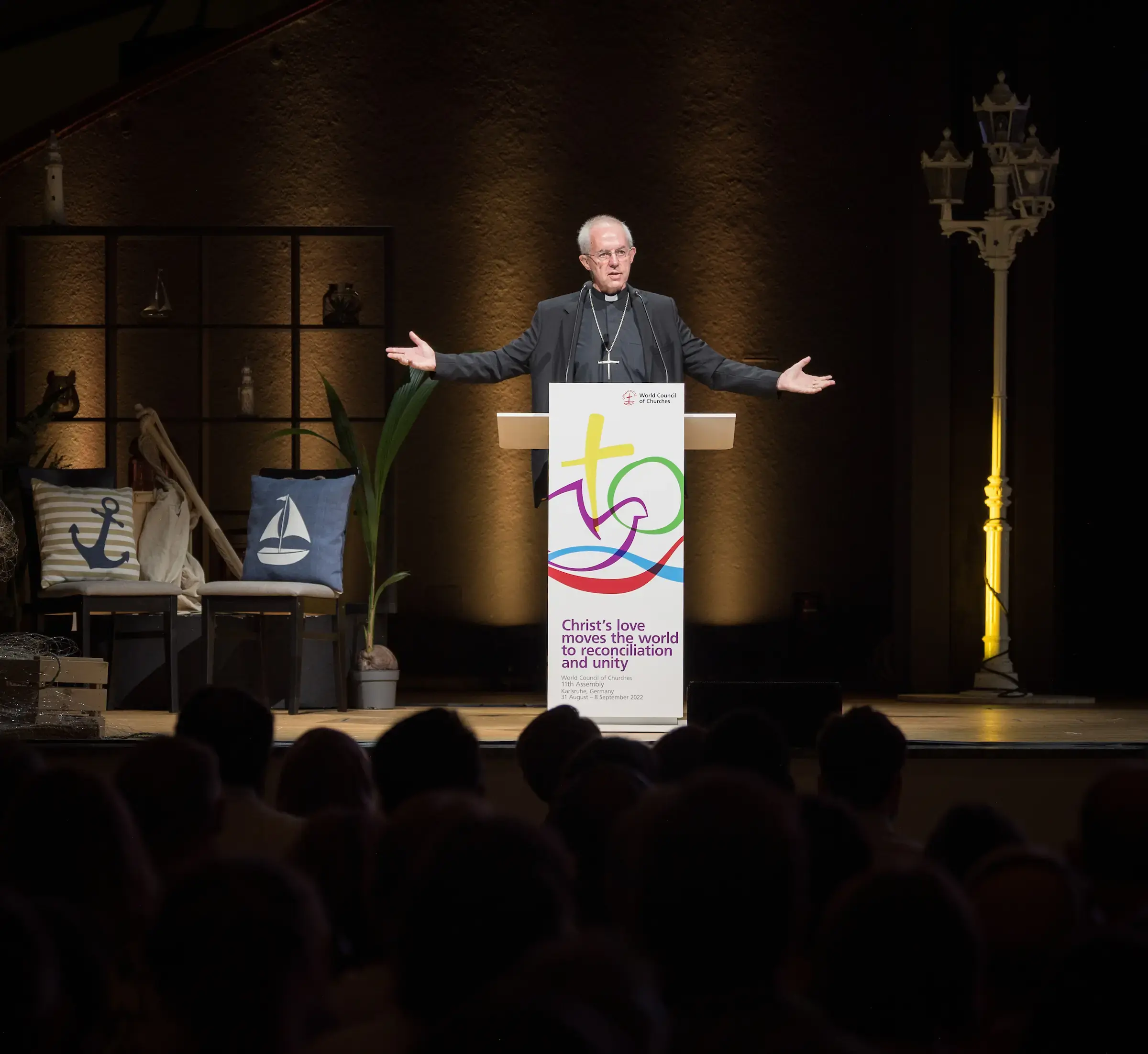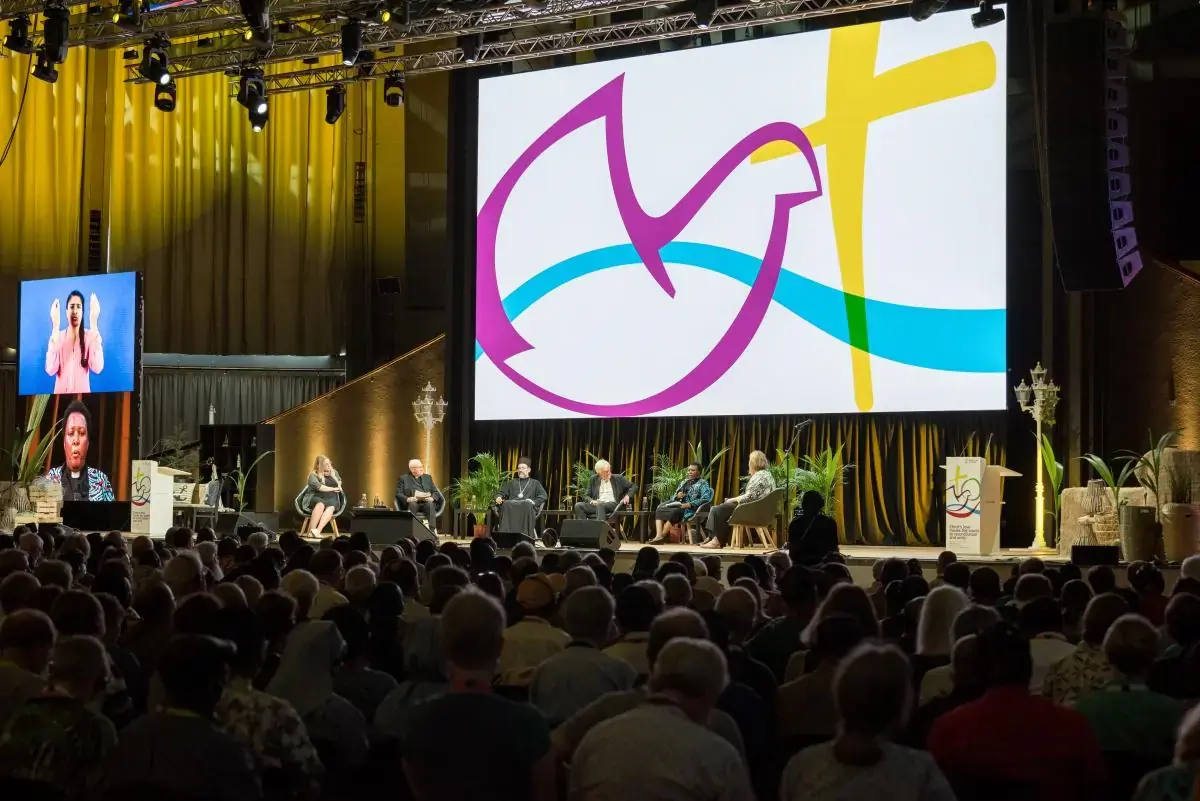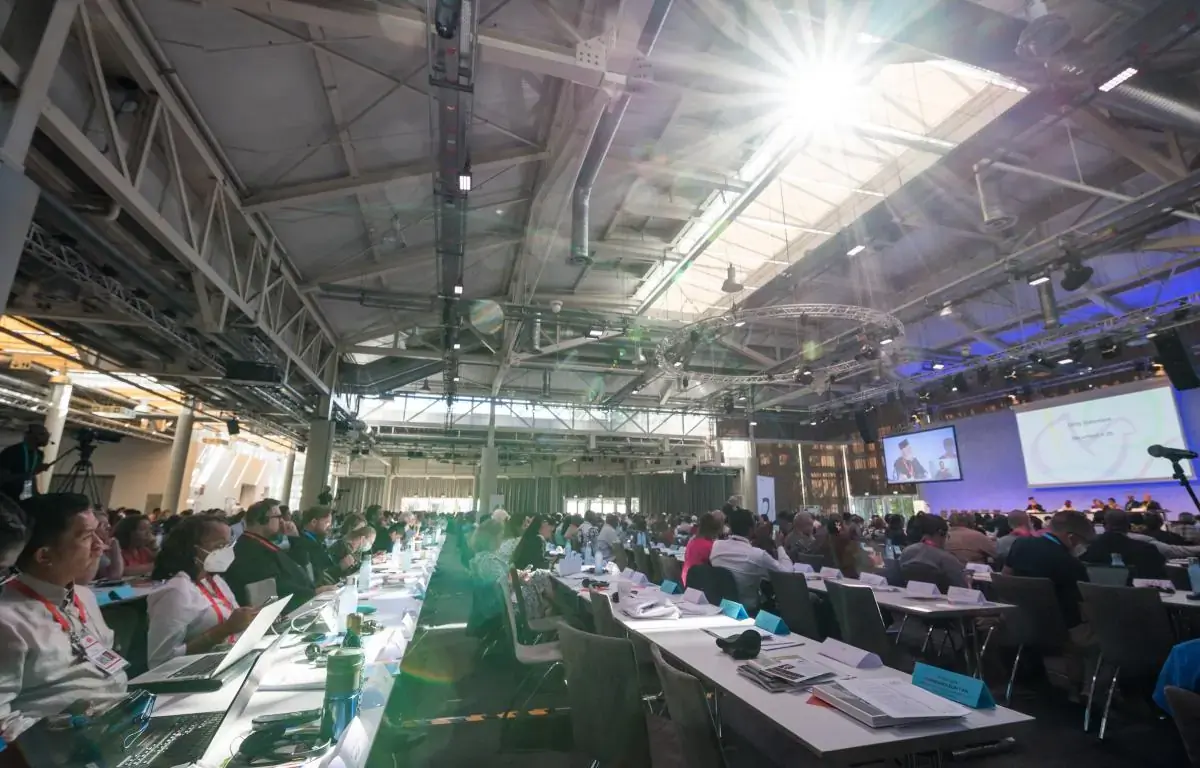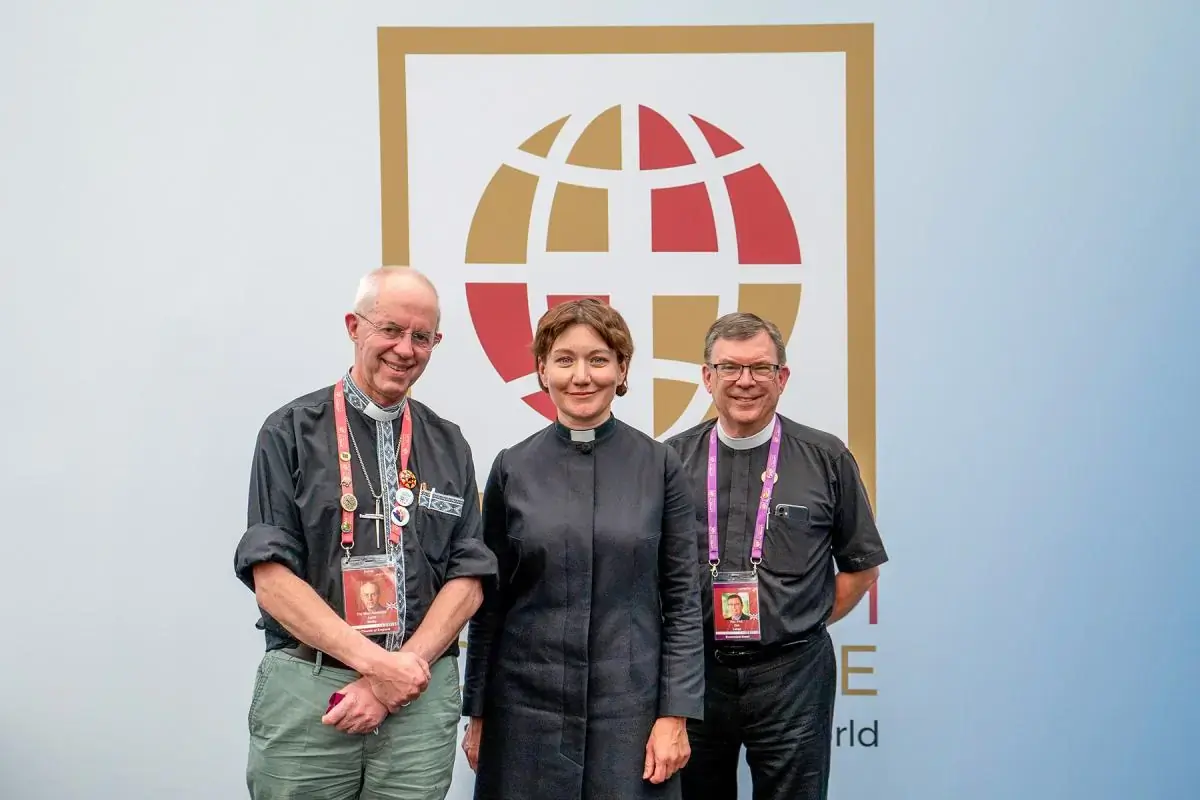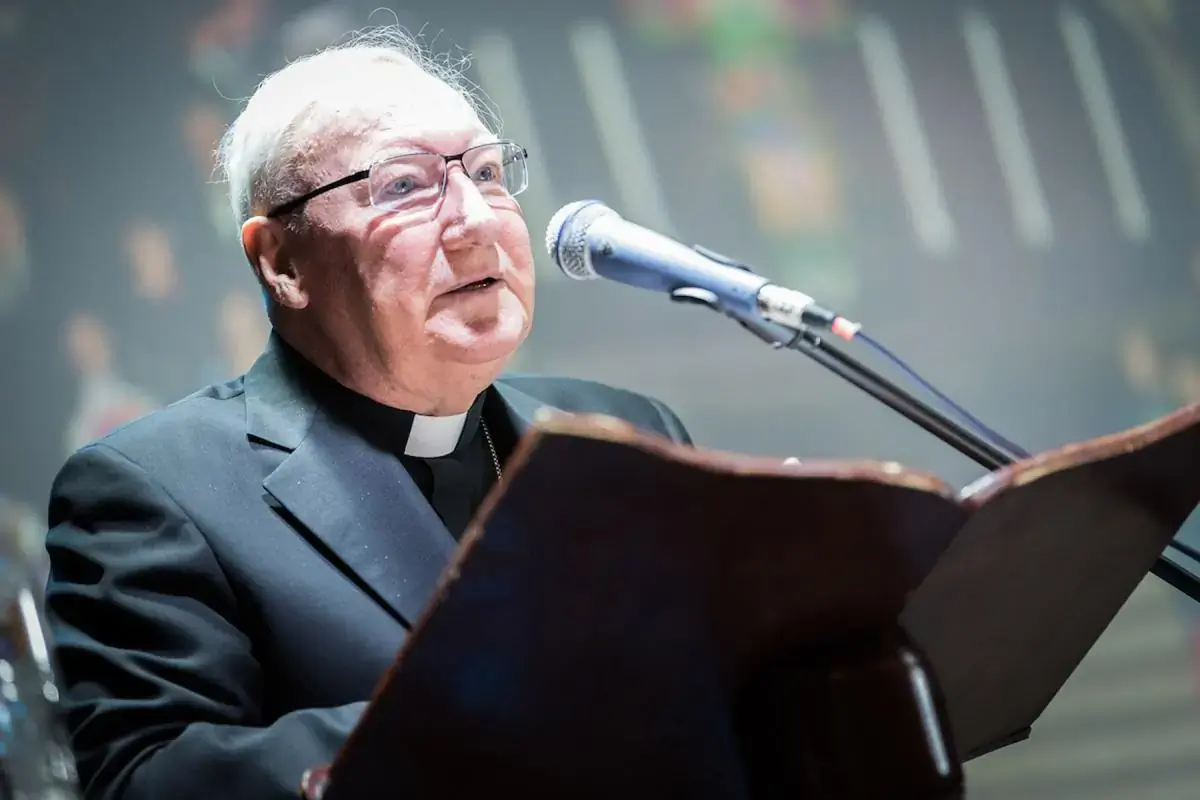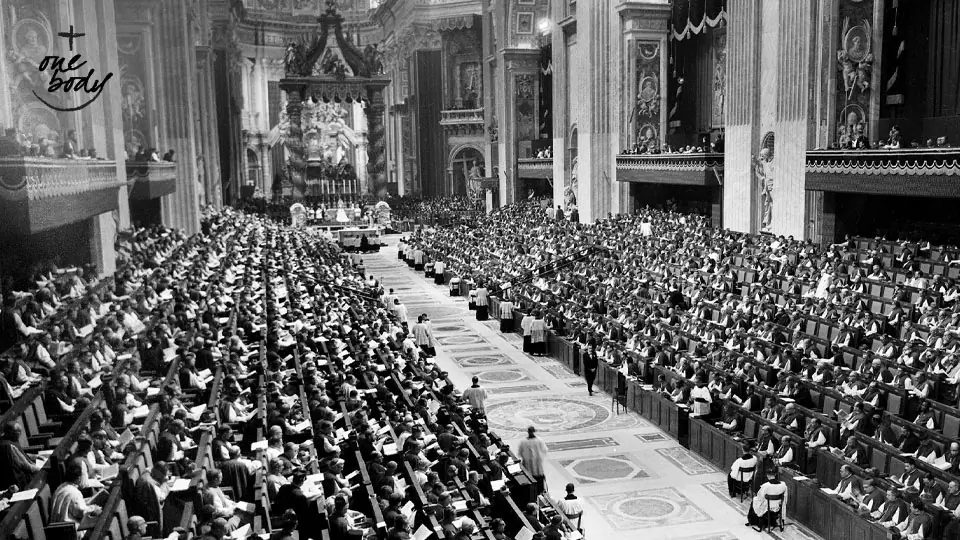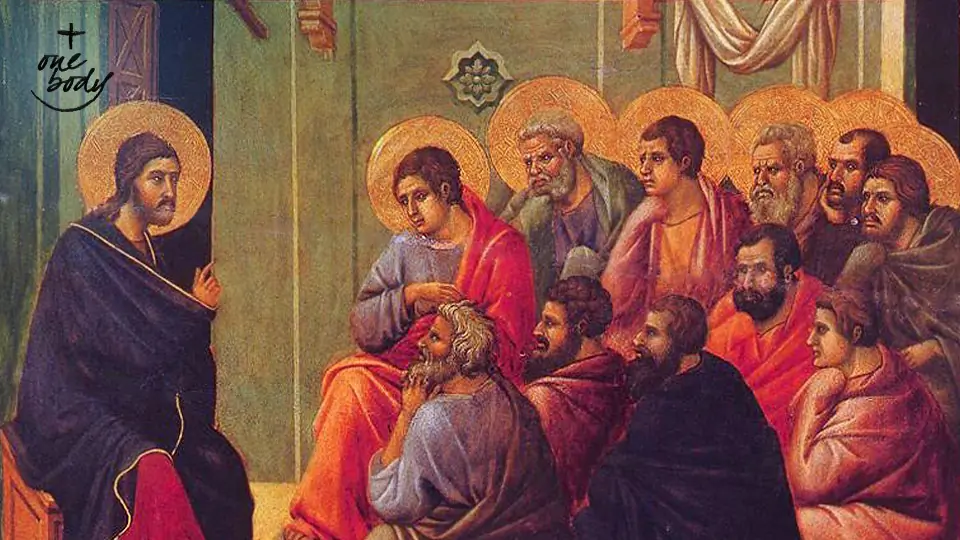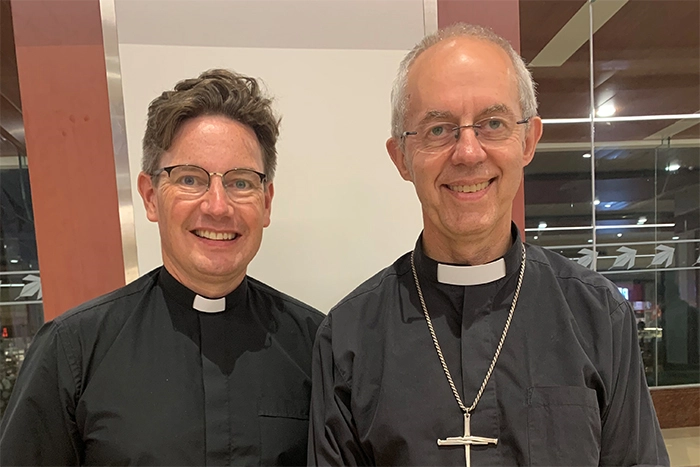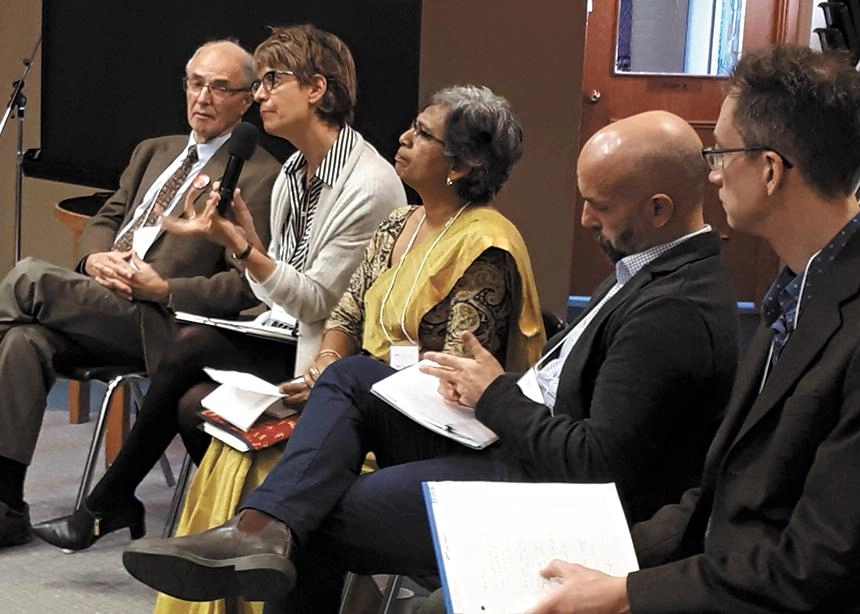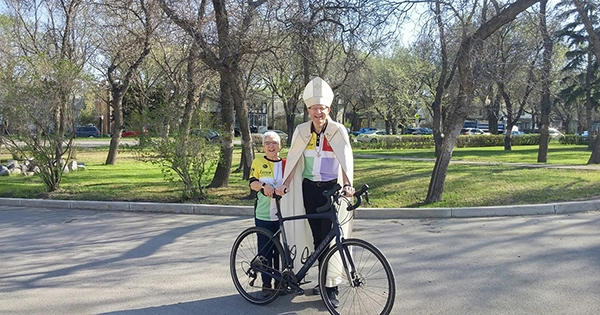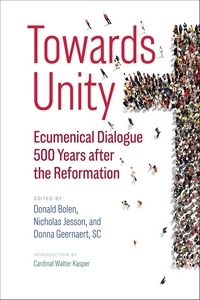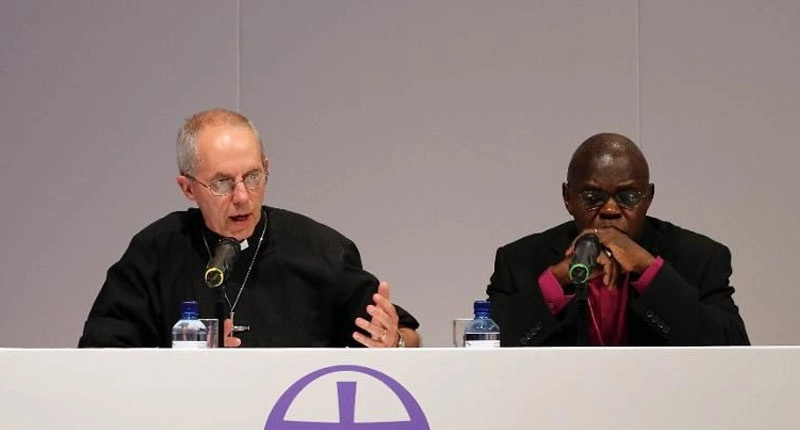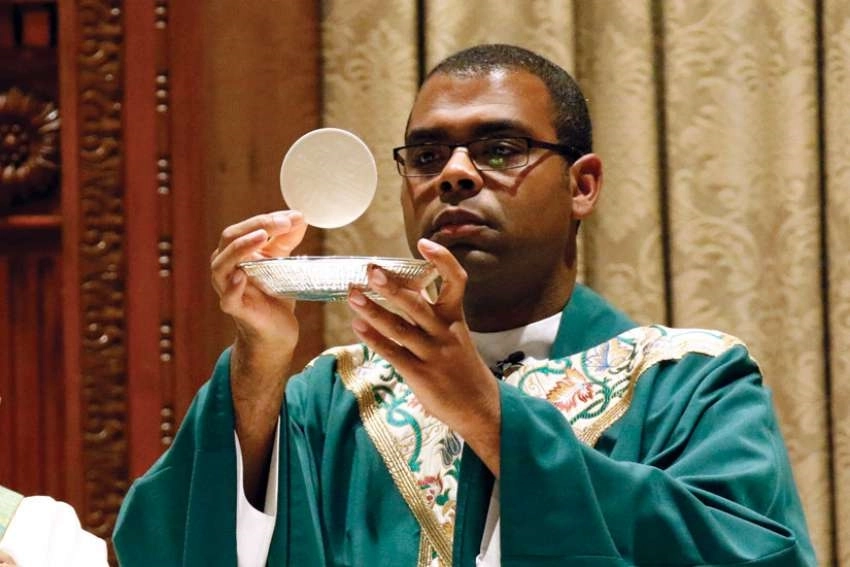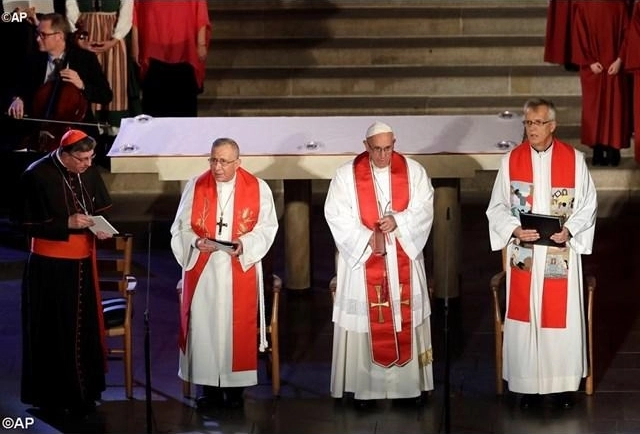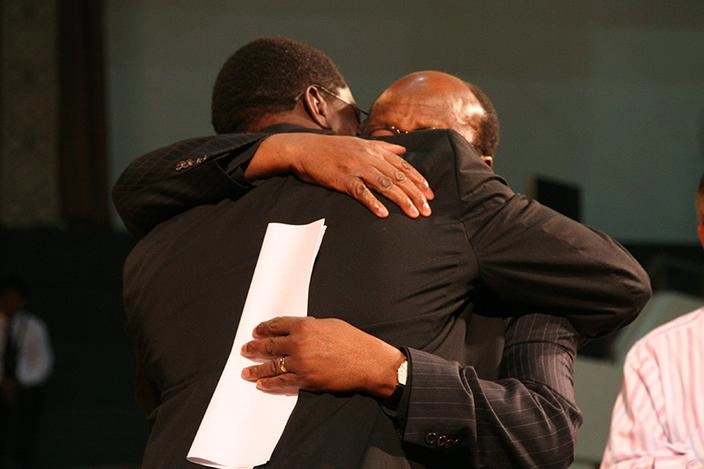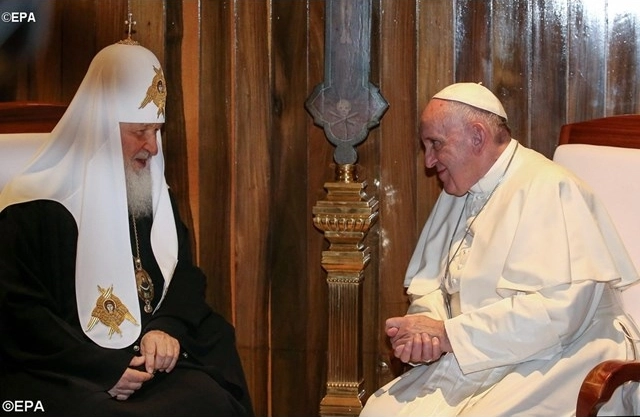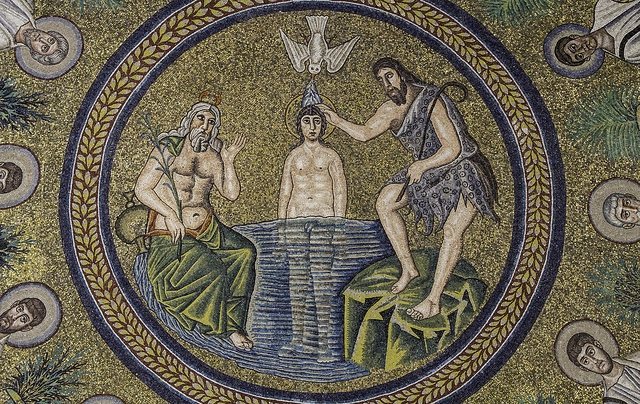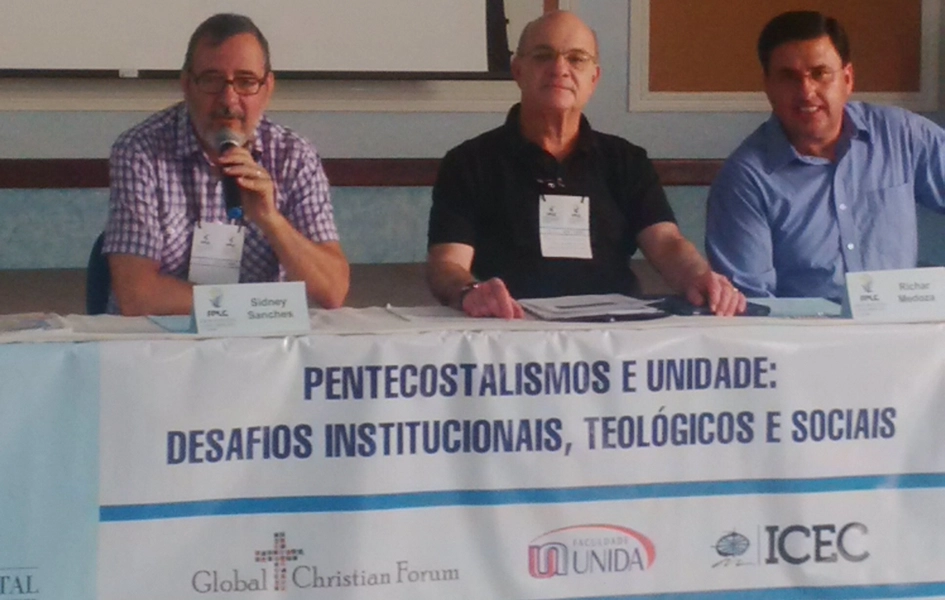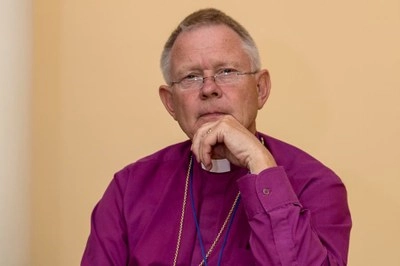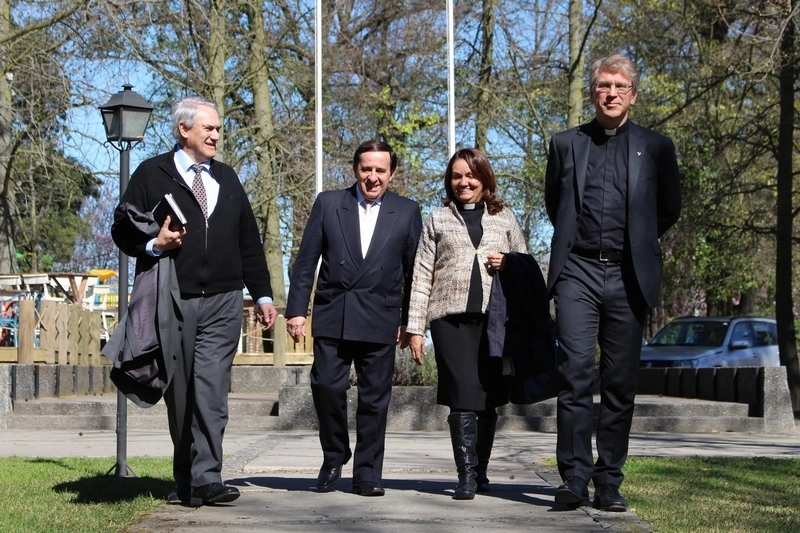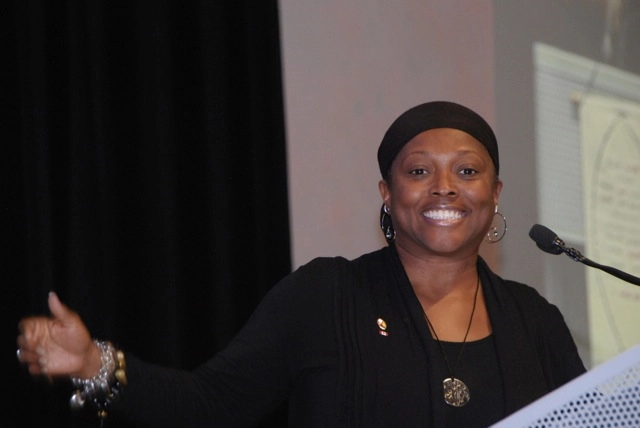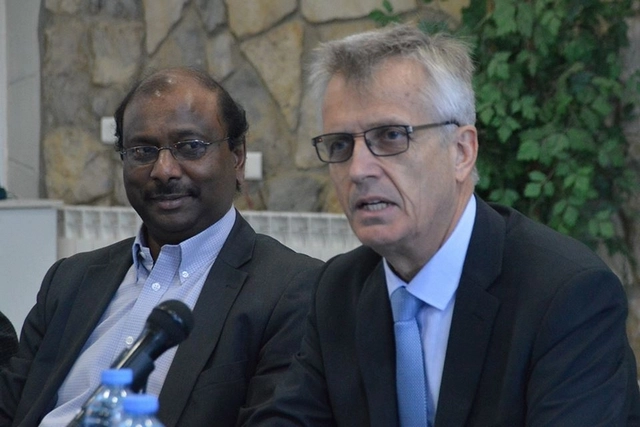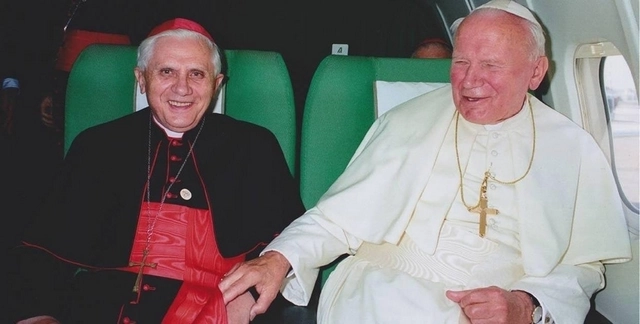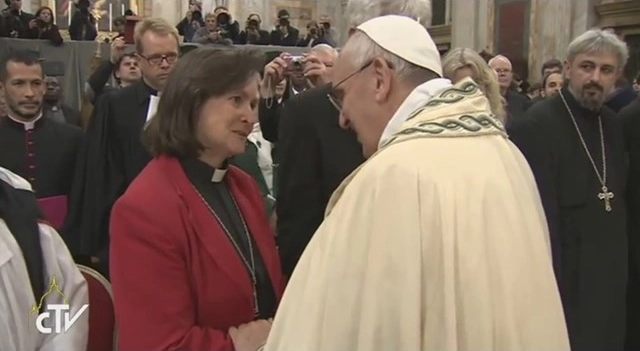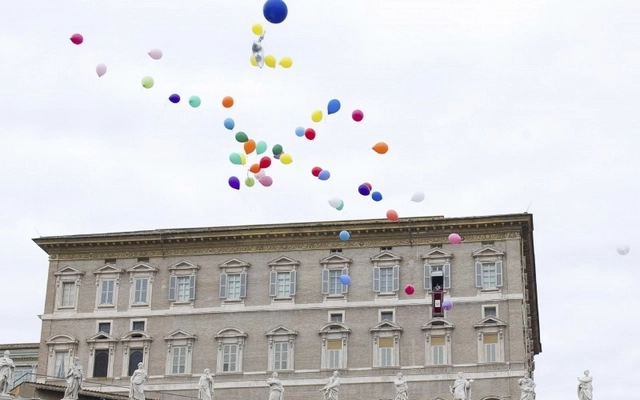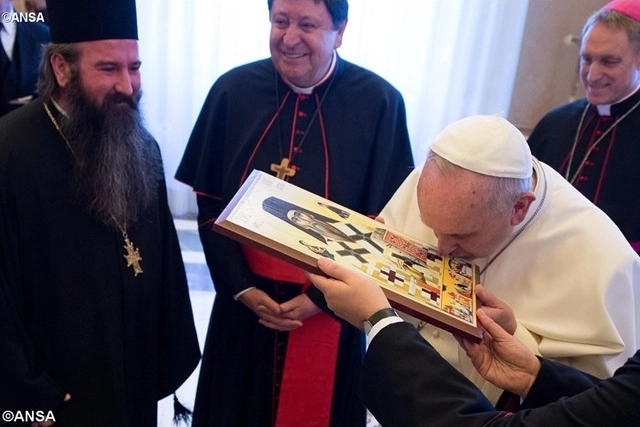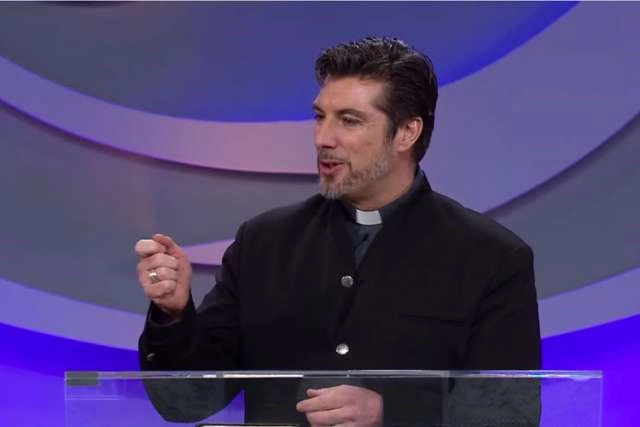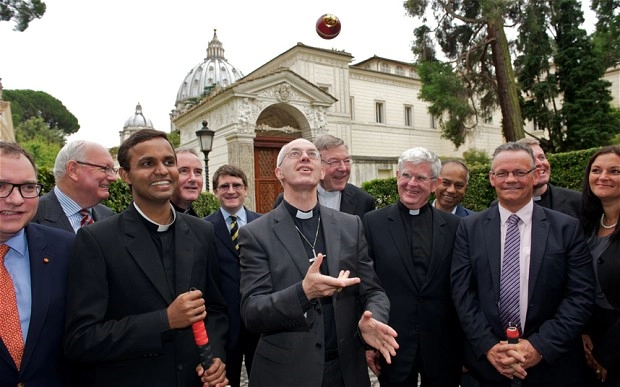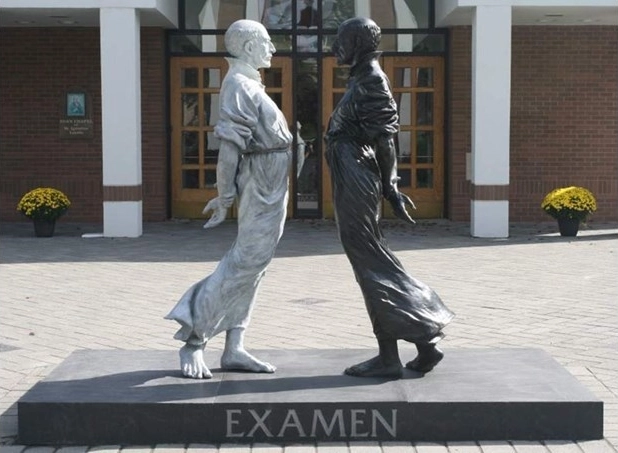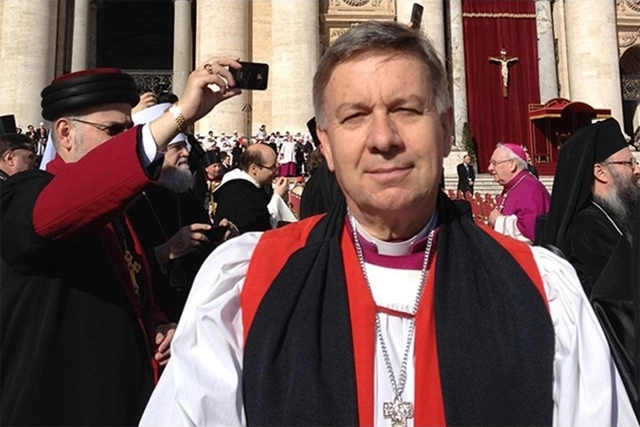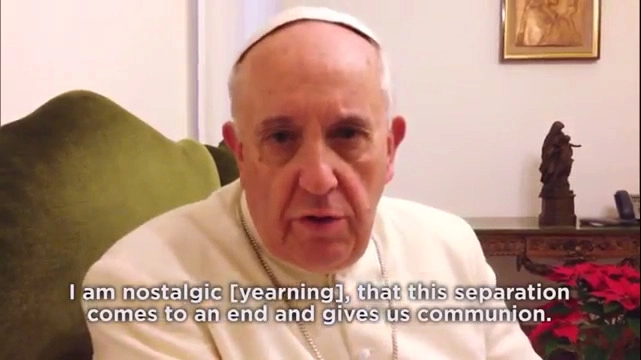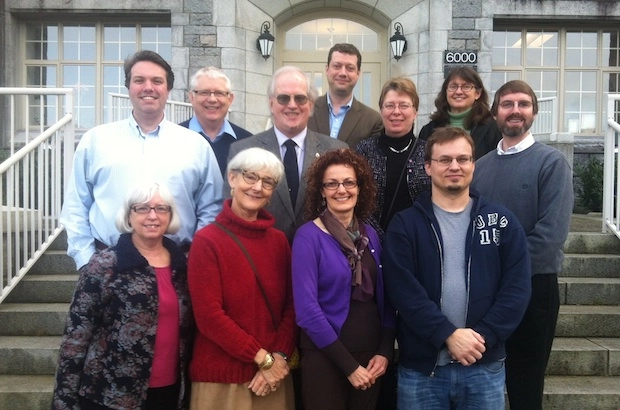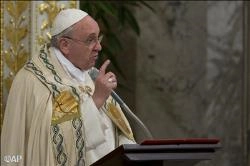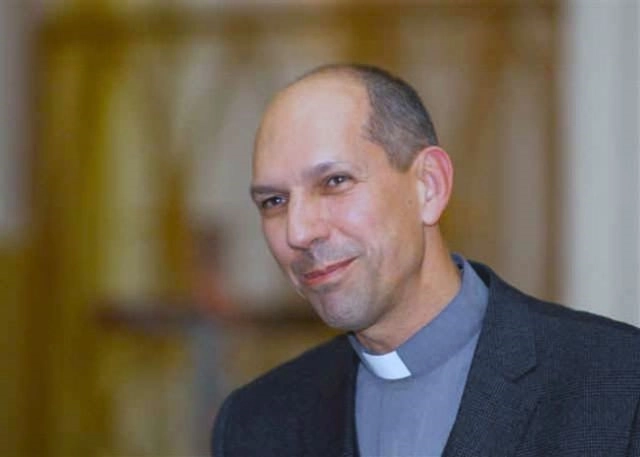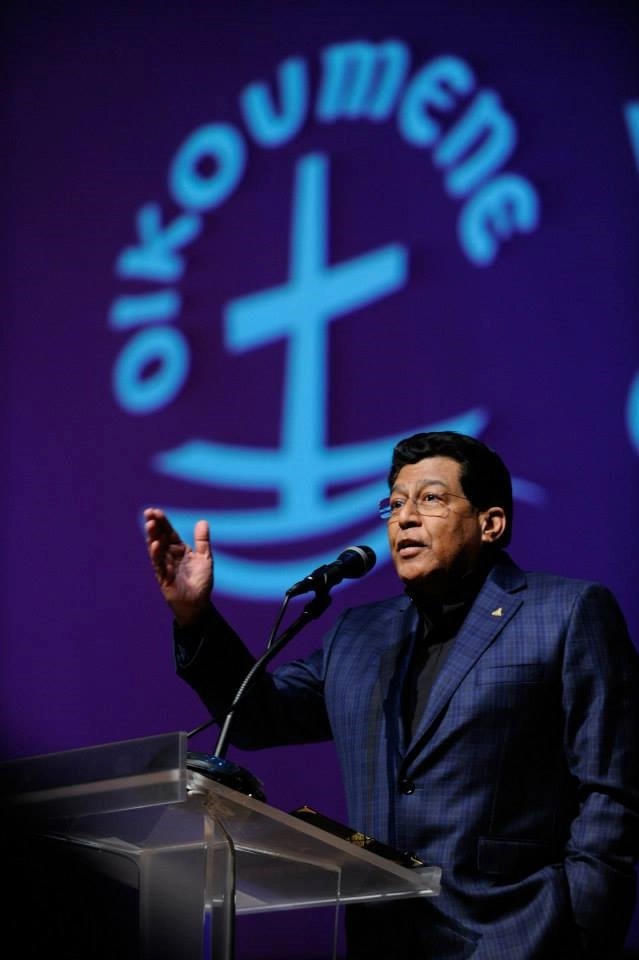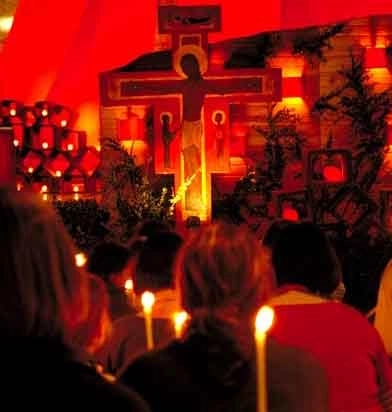- Français
- |
- Booklist
- |
- Week of Prayer
- |
- Links
- Areopagus - a forum for dialogue
- Academic journals
- Acronyms
- Bible tools
- Bibliographies
- Booksellers and publishers
- Churches
- Canadian church headquarters
- Directory of Saskatchewan churches
- Retreat centres
- Saskatchewan church and non-profit agencies
- Ecumenism.net Denominational links
- Anabaptist & Mennonite
- Anglican
- Baptist
- Evangelical
- Independent episcopal
- Lutheran
- Methodist, Wesleyan, and Holiness
- Miscellaneous
- Mormon
- Orthodox (Eastern & Oriental)
- Para-church ministries
- Pentecostal / charismatic
- Presbyterian & Reformed
- Quaker (Society of Friends)
- Roman & Eastern Catholic
- United and uniting
- Documents of Ecumenical Interest
- Ecumenical agencies
- Ecumenical Booklist
- Ecumenical Dialogues
- Glossary
- Human rights
- Inter-religious links
- Justice & peace
- Lectionaries
- Religious news services
- Resource pages
- Search Ecumenism.Net
- |
- Documents
- Ancient & Medieval texts
- Ecumenical Dialogues
- Interreligious
- Anabaptist & Mennonite
- Anglican
- Evangelical
- Lutheran
- Orthodox
- Reformed & Presbyterian
- Roman & Eastern Catholic
- United & Uniting
- Miscellaneous churches
- Canadian Council of Churches (CCC)
- Conference of European Churches (CEC)
- Interchurch Families International Network (IFIN)
- National Council of Churches in Australia (NCCA)
- Lausanne Committee for World Evangelism (LCWE)
- World Council of Churches (WCC)
- Other ecumenical documents
Church traditions
Documents from ecumenical agencies
- |
- Dialogues
- Adventist-Reformed
- African Instituted Churches-Reformed
- Anglican-Lutheran
- Anglican-Orthodox
- Anglican-Reformed
- Anglican-Roman Catholic
- Anglican-United/Uniting
- Baptist-Reformed
- Disciples of Christ-Reformed
- Disciples of Christ-Roman Catholic
- Evangelical-Roman Catholic
- Lutheran-Mennonite
- Lutheran-Mennonite-Roman Catholic
- Lutheran-Reformed
- Lutheran-Roman Catholic
- Mennonite-Reformed
- Mennonite-Roman Catholic
- Methodist-Reformed
- Methodist-Roman Catholic
- Oriental Orthodox-Reformed
- Orthodox-Reformed
- Orthodox-Roman Catholic
- Pentecostal-Reformed
- Prague Consultations
- REC-WARC Consultations
- Roman Catholic-Lutheran-Reformed
- Roman Catholic-Reformed
- Roman Catholic-United Church of Canada
- |
- Quick links
- Canadian Centre for Ecumenism
- Canadian Council of Churches
- Ecumenical Shared Ministries
- Ecumenism in Canada
- Interchurch Families International Network
- International Anglican-Roman Catholic Commission for Unity and Mission
- Kairos: Canadian Ecumenical Justice Initiatives
- North American Academy of Ecumenists
- Prairie Centre for Ecumenism
- Réseau œcuménique justice et paix
- Week of Prayer for Christian Unity
- Women's Interchurch Council of Canada
- World Council of Churches
- |
- Archives
- |
- About us
Archive for tag: Christian unity
Archive pour tag : Christian unity
A major leap forward in Christian unity began with an embrace, as Pope Francis recalled.
St. Paul VI and Orthodox Ecumenical Patriarch Athenagoras I of Constantinople met, and embraced, in Jerusalem in January 1964 and the following year they lifted the mutual excommunications their churches had issued in 1054.
Pope Francis marked the anniversary during his Angelus address Jan. 6, 2024 telling a crowd in St. Peter’s Square that the two leaders had broken down “a wall of incommunicability that had kept Catholics and Orthodox apart for centuries. Let us learn from the embrace of those two great men of the church on the path to Christian unity: praying together, walking together, working together.”
The praying, walking and working will be highlighted Jan. 18-25 as Christians around the world celebrate the Week of Prayer for Christian Unity.
… Read more » … lire la suite »

 Permanent link: ecumenism.net/?p=14009
Permanent link: ecumenism.net/?p=14009
Categories: CNS • In this article: Christian unity, Pope Francis, WPCU

 Lien permanente : ecumenism.net/?p=14009
Lien permanente : ecumenism.net/?p=14009
Catégorie : CNS • Dans cet article : Christian unity, Pope Francis, WPCU
While formal dialogue about the theological and historical causes of the splits in Christianity are essential, so, too, is a recognition that “sinful actions and attitudes” have contributed and continue to contribute to divisions in the body of Christ, Pope Francis said.
“We are called, then, to work toward the restoration of unity between Christians, not merely through signed agreements but through fidelity to the Father’s will and discernment of the promptings of the Spirit,” Pope Francis wrote in a letter to Ecumenical Patriarch Bartholomew of Constantinople Nov. 30, the feast of St. Andrew.
… Read more » … lire la suite »

 Permanent link: ecumenism.net/?p=12871
Permanent link: ecumenism.net/?p=12871
Categories: CNS • In this article: Bartholomew I, Catholic, Christian unity, Orthodox, Pope Francis

 Lien permanente : ecumenism.net/?p=12871
Lien permanente : ecumenism.net/?p=12871
Catégorie : CNS • Dans cet article : Bartholomew I, Catholic, Christian unity, Orthodox, Pope Francis
“The WCC puts unity before justice!” This was the complaint of one Canadian participant in the World Council of Churches’ 11th Assembly in Karlsruhe, Germany. The 65 Canadian participants gathered recently to debrief their experience of the August 31st to September 8th gathering of churches from around the world. The theme of the Assembly was “Christ’s love moves the world to reconciliation and unity.”
Back in May, Sr. Donna Geernaert wrote about the Assembly theme in her blog post “An Ecumenism of the Heart.” Over 3,750 church delegates, observers, advisors, visitors, and media came from around the world to Karlsruhe. WCC assemblies are only held every 7 or 8 years, so it was an excellent opportunity for me to attend along with my wife, Rev. Amanda Currie, one of the delegates from the Presbyterian Church in Canada.
… Read more » … lire la suite »

 Permanent link: ecumenism.net/?p=13629
Permanent link: ecumenism.net/?p=13629
Categories: One Body, Opinion • In this article: Christian unity, social justice, WCC Assembly

 Lien permanente : ecumenism.net/?p=13629
Lien permanente : ecumenism.net/?p=13629
Catégorie : One Body, Opinion • Dans cet article : Christian unity, social justice, WCC Assembly
“For the first time in a long while, this 11th assembly provided safe spaces for serious engagement, reflections, prayer, challenging one another, [and] encounters.” said Dr Agnes Abuom, moderator of the World Council of Churches (WCC) central committee. She spoke of her take-aways from the WCC assembly, including the “commitment to the search for unity – common vision and understanding,” which she referred to as the cornerstone of the WCC.
… Read more » … lire la suite »

 Permanent link: ecumenism.net/?p=12477
Permanent link: ecumenism.net/?p=12477
Categories: Conferences, WCC News • In this article: Christian unity, WCC, WCC Assembly

 Lien permanente : ecumenism.net/?p=12477
Lien permanente : ecumenism.net/?p=12477
Catégorie : Conferences, WCC News • Dans cet article : Christian unity, WCC, WCC Assembly
The WCC 11th Assembly has recommended increasing youth participation in the global ecumenical fellowship.
The assembly received, affirmed, and endorsed a Youth Statement signed by 38 youth members of the assembly, including 12 delegates and nine advisers. The assembly is referring to the WCC central committee for action, noting “the need for full youth involvement in all commissions, committees, advisory groups, and reference groups of the WCC, but also the apparent reluctance of some member churches to nominate young people to the central committee and other committees.”
… Read more » … lire la suite »

 Permanent link: ecumenism.net/?p=12469
Permanent link: ecumenism.net/?p=12469
Categories: WCC News • In this article: Christian unity, WCC, WCC Assembly, youth

 Lien permanente : ecumenism.net/?p=12469
Lien permanente : ecumenism.net/?p=12469
Catégorie : WCC News • Dans cet article : Christian unity, WCC, WCC Assembly, youth
At times of world crisis, the “habits of division” between Christians must end, the Archbishop of Canterbury said on Wednesday. He was addressing the 11th World Council of Churches (WCC) Assembly, meeting in Karlsruhe, Germany (Comment, 2 September).
Archbishop Welby spoke of the Lambeth Conference meeting in Canterbury over the summer (News, 19 August), at which participants had expressed “huge differences” over matters such as human sexuality. “We found our way forward through, not by solving the issues but by living in the light of Christ, by saying we do not agree, by being honest without excluding one another.”
… Read more » … lire la suite »

 Permanent link: ecumenism.net/?p=12460
Permanent link: ecumenism.net/?p=12460
Categories: News • In this article: Christian unity, Justin Welby, WCC, WCC Assembly

 Lien permanente : ecumenism.net/?p=12460
Lien permanente : ecumenism.net/?p=12460
Catégorie : News • Dans cet article : Christian unity, Justin Welby, WCC, WCC Assembly
Speakers during a World Council of Churches (WCC) 11th Assembly plenary under the theme “Christian unity and the churches’ common witness” on 7 September reflected on unity, mission, and reconciliation in the fellowship and ecumenical movement. The plenary theme included conversation on accomplishments and challenges to Christian unity and mission since the WCC 10th Assembly in Busan, and mutual accountability and witness to the love of Christ in a changing landscape and looking forward.
… Read more » … lire la suite »

 Permanent link: ecumenism.net/?p=12491
Permanent link: ecumenism.net/?p=12491
Categories: Conferences, WCC News • In this article: Christian unity, Heinrich Bedford-Strohm, WCC, WCC Assembly

 Lien permanente : ecumenism.net/?p=12491
Lien permanente : ecumenism.net/?p=12491
Catégorie : Conferences, WCC News • Dans cet article : Christian unity, Heinrich Bedford-Strohm, WCC, WCC Assembly
Archbishop Justin today addressed the 11th Assembly of the World Council of Churches. The WCC Assembly is the highest governing body of the World Council of Churches, and normally meets every eight years. This year’s conference took place between 31st August – 8th September 2022. It is the only time when the entire fellowship of member churches come together in one place for prayer and celebration. The theme of the 11th Assembly of the World Council of Churches is “Christ’s love moves the world to reconciliation and unity”.
… Read more » … lire la suite »

 Permanent link: ecumenism.net/?p=12462
Permanent link: ecumenism.net/?p=12462
Categories: News, Opinion • In this article: Christian unity, Justin Welby, WCC, WCC Assembly

 Lien permanente : ecumenism.net/?p=12462
Lien permanente : ecumenism.net/?p=12462
Catégorie : News, Opinion • Dans cet article : Christian unity, Justin Welby, WCC, WCC Assembly
In a process described as, “a journey of walking together, praying together, and working together,” Dr Agnes Abuom, WCC moderator, began the second business plenary with a review of the assembly decision-making process. “The decisions of the assembly are expressed through the final reports of the assembly committees,” she said, noting the distinction between earlier messages and final messages, which are expected to come to assembly next week.
During the plenary, the assembly received the second report of the nominations committee. At the time of the report, over 163 nominations had been submitted for 150 seats on the WCC central committee, with more nominations still expected. Part of the work of the nominations committee will be to ensure a balance of representation with respect to youth, gender, lay, as well as Indigenous persons and persons with disabilities.
… Read more » … lire la suite »

 Permanent link: ecumenism.net/?p=12411
Permanent link: ecumenism.net/?p=12411
Categories: Conferences, WCC News • In this article: Christian unity, WCC, WCC Assembly

 Lien permanente : ecumenism.net/?p=12411
Lien permanente : ecumenism.net/?p=12411
Catégorie : Conferences, WCC News • Dans cet article : Christian unity, WCC, WCC Assembly
How do we – as Christian world communions – define the goal of visible unity for our churches? Can we find a way forward, walking together towards a shared vision? Or do we “simply fall back and expect the other to look like us?”
Those were key questions posed by the Lutheran World Federation (LWF) General Secretary Rev. Anne Burghardt to Anglican bishops and representatives of other Christian world communions gathered at the 15th Lambeth Conference in Canterbury, England.
Under the leadership of the Archbishop of Canterbury Justin Welby, over 650 Anglican leaders, as well as bishops in full communion from across the globe, are meeting from 26 July to 8 August. Reflecting on the theme ‘God’s Church for God’s World: walking, listening and witnessing together’, they are discussing the mission and the priorities of the worldwide communion for the next decade.
… Read more » … lire la suite »

 Permanent link: ecumenism.net/?p=12347
Permanent link: ecumenism.net/?p=12347
Categories: Lutheran World Information • In this article: Anne Burghardt, Christian unity, Dirk Lange, Lambeth Conference, Lutheran World Federation

 Lien permanente : ecumenism.net/?p=12347
Lien permanente : ecumenism.net/?p=12347
Catégorie : Lutheran World Information • Dans cet article : Anne Burghardt, Christian unity, Dirk Lange, Lambeth Conference, Lutheran World Federation
As Christians come together to mark the annual ecumenical Week of Prayer, the Secretary of the Pontifical Council for Promoting Christian Unity (PCPCU), Bishop Brian Farrell, says Pope Francis’ synodal process could make a “hugely important” contribution to improving relationships between the different churches.
… Read more » … lire la suite »

 Permanent link: ecumenism.net/?p=11280
Permanent link: ecumenism.net/?p=11280
Categories: Lutheran World Information • In this article: Brian Farrell, Christian unity, Dirk Lange, synodality, WPCU

 Lien permanente : ecumenism.net/?p=11280
Lien permanente : ecumenism.net/?p=11280
Catégorie : Lutheran World Information • Dans cet article : Brian Farrell, Christian unity, Dirk Lange, synodality, WPCU
“May they all be one . . . that the world may believe that you sent me” (John 17:21). These words from Jesus’ prayer at the Last Supper define the goal of the ecumenical effort among Christians around the world. Insofar as unity among the followers of Jesus witnesses to the credibility of the Gospel, it is not surprising that the 1910 Missionary Conference in Edinburgh is usually identified as the beginning of the 20th century ecumenical movement. Although the Catholic Church did not take part in the 1910 conference, the ecumenical landscape has changed so much over the past 100 years that the Vatican’s Pontifical Council for Promoting Christian Unity (PCPCU) was actively involved with the World Council of Churches (WCC) in preparing to celebrate the anniversary and in exploring ways of undertaking mission together.
… Read more » … lire la suite »

 Permanent link: ecumenism.net/?p=13579
Permanent link: ecumenism.net/?p=13579
Categories: One Body, Opinion • In this article: Catholic, Christian unity

 Lien permanente : ecumenism.net/?p=13579
Lien permanente : ecumenism.net/?p=13579
Catégorie : One Body, Opinion • Dans cet article : Catholic, Christian unity
Quite often in the Gospel accounts of Jesus’ life and ministry, we are given glimpses into his prayer life. In many instances, we read simply that Jesus went away (by himself or with others) to pray. More rarely we discover the content of Jesus’ prayers, that is, the “what” of his prayers or the actual words that he used in prayer.
One place where the content of Jesus’ prayer is shared with us directly is in the 17th chapter of the Gospel of John. At the end of a rather lengthy section (typically called Jesus’ Farewell or Last Supper Discourse – beginning in chapter 14), Jesus turns his eyes toward heaven and offers his so-called “priestly prayer” for the protection, sanctification, and unity of his disciples. He prays first for those who are his followers at that time, and then he prays for those who will follow him in the future.
… Read more » … lire la suite »

 Permanent link: ecumenism.net/?p=13577
Permanent link: ecumenism.net/?p=13577
Categories: One Body, Opinion • In this article: Christian unity, ecumenism, John 17

 Lien permanente : ecumenism.net/?p=13577
Lien permanente : ecumenism.net/?p=13577
Catégorie : One Body, Opinion • Dans cet article : Christian unity, ecumenism, John 17
I remember one year when the lectionary texts included 1 Corinthians 12, we sang a processional song by Canadian church composer Andrew Donaldson with the words: “the body is one with many parts, the parts are many the body is one.” The youth of the church had built huge papier-mâché bodies that danced on stilts at the front of the procession. The image of the whole church gathered to sing, worship, and even dance reflects the dynamic character of the church as a living body. This image of the church as a human body comes to us from the Apostle Paul writing to the Corinthians to help them overcome their own divisions. “Indeed, the body does not consist of one member but of many” (v. 14). We are one body because, in baptism, the Spirit has gathered us into the one body of Christ.
… Read more » … lire la suite »

 Permanent link: ecumenism.net/?p=13575
Permanent link: ecumenism.net/?p=13575
Categories: One Body, Opinion, Resources • In this article: Christian unity, ecumenism

 Lien permanente : ecumenism.net/?p=13575
Lien permanente : ecumenism.net/?p=13575
Catégorie : One Body, Opinion, Resources • Dans cet article : Christian unity, ecumenism
The Department for Unity, Faith and Order in the Anglican Communion has at its core the search for deeper unity between Christians, be that within and between the churches of the Anglican Communion or between the Anglican Communion and other Christian churches and bodies.
Much of the work of Unity, Faith and Order (which goes by the extra-terrestrial acronym UFO) is taken up with encouraging Christians to talk together. Over the course of the last century much work has been done to break down mutual suspicion and division between churches by patient dialogue and the building up of relationships. This happens at the local level, where Christians find that when they come together to pray or get involved with mission and ministry that they have more in common than they first thought. It also happens at national and international level, when theologians from different churches and traditions talk together to come to agreement on issues that have previously divided them.
… Read more » … lire la suite »

 Permanent link: ecumenism.net/?p=10720
Permanent link: ecumenism.net/?p=10720
Categories: ACNS • In this article: Anglican Communion, Christian unity, ecumenism

 Lien permanente : ecumenism.net/?p=10720
Lien permanente : ecumenism.net/?p=10720
Catégorie : ACNS • Dans cet article : Anglican Communion, Christian unity, ecumenism
After five years of meetings by an international commission of Mennonites, Lutherans and Roman Catholics on the topic of baptism, John Rempel, the commission’s Mennonite representative, presented a trilateral report from that dialogue at an event called “One Baptism? A Symposium on Baptism and the Christian Life,” at Waterloo North Mennonite Church on Nov. 8.
Pastors, denominational leaders, professors and some students from Conrad Grebel University College attended the Anabaptist Learning Workshop event, sponsored by Grebel and Mennonite Church Eastern Canada.
Framed around scriptures emphasizing the image of the church as one body with one baptism, the symposium began and ended with times of worship. In between, Rempel summarized the report and then invited three people, one from each tradition, to respond. They formed a panel that fielded further comments and questions.
Mennonite World Conference (MWC) engaged in the trilateral dialogue because “Jesus Christ calls us to be one.” Participation was seen as a way to build on previous reconciliation efforts between the denominations, nurturing mutual understanding and cooperation.
… Read more » … lire la suite »

 Permanent link: ecumenism.net/?p=10697
Permanent link: ecumenism.net/?p=10697
Categories: News • In this article: baptism, Catholic, Christian unity, dialogue, Dicastery for Promoting Christian Unity, Lutheran World Federation, Mennonite World Conference

 Lien permanente : ecumenism.net/?p=10697
Lien permanente : ecumenism.net/?p=10697
Catégorie : News • Dans cet article : baptism, Catholic, Christian unity, dialogue, Dicastery for Promoting Christian Unity, Lutheran World Federation, Mennonite World Conference
Dipping his bicycle tires into the Pacific Ocean on the morning of Saturday, May 19, Bishop Rob Hardwick of the Diocese of Qu’Appelle officially began a cross-country pilgrimage to the Atlantic coast to promote unity, healing, and reconciliation within the Anglican Church of Canada.
Over the course of a planned 62 days, the 7,877-kilometre cycling journey will take Bishop Hardwick from Victoria, B.C. to St. John’s, Newfoundland, during which he will meet and pray with thousands of people in hundreds of congregations.
“I’m hoping to gather people’s comments, what they understand those three words [unity, healing, and reconciliation] to mean in their own lives,” the bishop said.
“Obviously in our church, we are fairly conflicted in some issues. So what does it mean to be a church of unity? What does it mean to be a church of healing and reconciliation as well?”
… Read more » … lire la suite »

 Permanent link: ecumenism.net/?p=10272
Permanent link: ecumenism.net/?p=10272
Categories: Anglican Journal • In this article: Anglican, Christian unity, Qu'Appelle, Reconciliation, Robert Hardwick

 Lien permanente : ecumenism.net/?p=10272
Lien permanente : ecumenism.net/?p=10272
Catégorie : Anglican Journal • Dans cet article : Anglican, Christian unity, Qu'Appelle, Reconciliation, Robert Hardwick
In 2017, we mark the 500th anniversary of the Reformation. This Festschrift in honour of Monsignor John Radano, who served as head of the Pontifical Council for Promoting Christian Unity‘s Western section for nearly 25 years, offers a window on what has been achieved through ecumenical dialogue over the past 50 years. It also reminds us of the importance of ecumenical friendship in advancing the cause of Christian unity.
Since the Reformation, Christian unity has suffered many failures. Yet, especially in more recent times, it has also celebrated encouraging successes. Disparate Christian traditions are beginning to trust each other. Will Christians eventually find one shared identity? What are the theological and ecclesial challenges ahead? This timely collection of essays by prominent Catholic and Protestant ecumenists witnesses a hope for a future Christian unity born out of 50 years of honest and genuine dialogue.
Towards Unity – a collection of papers by major ecumenical contributors – reflects with passion and hope on bilateral dialogues, the ecumenical movement, and organizations that promote multilateral relationships. By the grace of the Holy Spirit, the scandal of division is giving birth to renewed relationships, dialogue, and awareness.
… Read more » … lire la suite »

 Permanent link: ecumenism.net/?p=9673
Permanent link: ecumenism.net/?p=9673
Categories: News, Resources • In this article: books, Christian unity, Nicholas Jesson

 Lien permanente : ecumenism.net/?p=9673
Lien permanente : ecumenism.net/?p=9673
Catégorie : News, Resources • Dans cet article : books, Christian unity, Nicholas Jesson
Those who work in the field of Christian unity for any length of time are quick to point out that ecumenism is the work of the Holy Spirit. We say that not to sound pious but because we know firsthand two things: from our failed efforts, that we cannot bring about unity by ourselves no matter how hard we try; and from our successes, that something else is operative in this work of dialogue and reconciliation. God’s grace shapes our efforts in countless ways, experienced in a deep yearning for unity, in the insights which come forth from dialogue, in the moments of breakthrough when new understandings are reached, in the relationships and bonds of communion that are formed when we work with other Christians at the service of unity.
Ecumenism is a work of the Holy Spirit in the churches as they put themselves at the service of Jesus’ desire that his disciples be reconciled, and it is a work of the Spirit in people’s lives. This volume, which reflects on ecumenical achievements and hopes as we mark the 500th anniversary of the Reformation, is a celebration of the work of the Holy Spirit in the churches and ecclesial communities of the West as they have sought to address conflicts and heal divisions. It is also a celebration of the work of the Holy Spirit in the ecumenical ministry of Monsignor John Radano, and in a secondary but very real way, of each of the contributors to this volume. John Radano, generally known by his dialogue partners and colleagues as Jack, served as head of the Pontifical Council for Promoting Christian Unity‘s (PCPCU) Western section for nearly a quarter century, from 1984 to 2008. In this capacity, he participated in dialogues with Lutheran, Reformed, Baptist, Mennonite, Classical Pentecostal, and Evangelical traditions, and served as liaison with the World Council of Churches‘ Commission on Faith and Order. Jack was also involved in relations with the Anglican Communion, the World Methodist Council, and the Global Christian Forum, so had a truly comprehensive involvement in relations with the Catholic Church’s dialogue and consultation partners in the West.
… Read more » … lire la suite »

 Permanent link: ecumenism.net/?p=9672
Permanent link: ecumenism.net/?p=9672
Categories: Resources • In this article: books, Christian unity, Donald Bolen, Donna Geernaert, Nicholas Jesson

 Lien permanente : ecumenism.net/?p=9672
Lien permanente : ecumenism.net/?p=9672
Catégorie : Resources • Dans cet article : books, Christian unity, Donald Bolen, Donna Geernaert, Nicholas Jesson
“This year, churches around the world will be marking the great significance of the 500th anniversary of the beginning of the Reformation in Europe, dated from Martin Luther’s 95 Theses protesting against the practice of indulgences, on 31 October 1517 at Wittenberg. The Church of England will be participating in various ways, including sharing in events with Protestant church partners from Continental Europe.
The Reformation was a process of both renewal and division amongst Christians in Europe. In this Reformation Anniversary year, many Christians will want to give thanks for the great blessings they have received to which the Reformation directly contributed. Amongst much else these would include clear proclamation of the gospel of grace, the availability of the Bible to all in their own language and the recognition of the calling of lay people to serve God in the world and in the church.
Many will also remember the lasting damage done five centuries ago to the unity of the Church, in defiance of the clear command of Jesus Christ to unity in love. Those turbulent years saw Christian people pitted against each other, such that many suffered persecution and even death at the hands of others claiming to know the same Lord. A legacy of mistrust and competition would then accompany the astonishing global spread of Christianity in the centuries that followed. All this leaves us much to ponder.
… Read more » … lire la suite »

 Permanent link: ecumenism.net/?p=9615
Permanent link: ecumenism.net/?p=9615
Categories: ACNS • In this article: Anglican, Christian unity, Church of England, John Sentamu, Justin Welby, Reformation

 Lien permanente : ecumenism.net/?p=9615
Lien permanente : ecumenism.net/?p=9615
Catégorie : ACNS • Dans cet article : Anglican, Christian unity, Church of England, John Sentamu, Justin Welby, Reformation
While attending an ecumenical service at a Lutheran church in Rome a year ago, Pope Francis encountered a Lutheran woman who was married to a Roman Catholic. She asked the Pope why she could not receive the Eucharist while attending Catholic services with her husband.
Caught unawares by this spur-of-the-moment question, Pope Francis’ immediate reply was to suggest that the woman should follow her conscience. It was the type of pastoral response that has become a trademark of Pope Francis, but it would be a mistake to believe his intention was to introduce a new Church teaching. His pastoral response does, however, signal that ancient barriers may well be in the process of reform.
Most Roman Catholics are probably aware that Protestants should not receive communion at a Catholic celebration of the Eucharist. But few probably know the reason why. Likewise, it is also fair to suggest that Catholics attending a Protestant service are often uncertain whether it is proper to receive Eucharist in a Protestant church.
Amid this uncertainty, I suspect a common response today from both Catholics and Protestants is to feel less conscience-bound to refrain from eucharistic sharing at each other’s gatherings.
… Read more » … lire la suite »

 Permanent link: ecumenism.net/?p=9613
Permanent link: ecumenism.net/?p=9613
Categories: Catholic Register • In this article: Catholic, Christian unity, sacramental sharing

 Lien permanente : ecumenism.net/?p=9613
Lien permanente : ecumenism.net/?p=9613
Catégorie : Catholic Register • Dans cet article : Catholic, Christian unity, sacramental sharing
Commemorations of next year’s 500th anniversary of the Reformation – which led to the separation of protestant churches from the Catholic Church – have begun with a combined prayer service in Lund Cathedral, Sweden, attended by Pope Francis and the Revd Dr Martin Junge, general secretary of the Lutheran World Federation. The participation of Pope Francis at the start of the year of commemorations is hugely significant and symbolises the growing ecumenical thaw which has been taking place over the past 50 years.
The prayer service is taking place in Lund Cathedral, which began life in 1080 as the seat of the Catholic archiepiscopal diocese of Lund; but since Danish Reformation in the 1520s and 1530s, has been a Lutheran cathedral. It became part of the Church of Sweden when the Province of Skåne (Scania) was ceded from Denmark to Sweden in 1658.
Through the Porvoo Communion, the Church of Sweden is in full communion with several Anglican churches, including the Church of England, the Church of Ireland, the Lusitanian Church of Portugal, the Scottish Episcopal Church, the Reformed Episcopal Church of Spain, and the Church in Wales. Elsewhere across the globe, other Anglican churches are in varying degrees of unity and communion with other Lutheran churches.
“We are on our way from conflict to communion,” Archbishop Antje Jackelén, leader of the Church of Sweden, said at a press conference, referencing the ground-breaking 2013 joint report between the two churches. “We are going to express our joy and gratitude for what we have in common: namely, the Gospel of Jesus Christ which unites us – that can be celebrated never enough.
“But there are also things that we definitely do not want to celebrate; but to repent and express our lament and sorrow; and that is, of course, the pain that division has caused throughout so many centuries.”
… Read more » … lire la suite »

 Permanent link: ecumenism.net/?p=11433
Permanent link: ecumenism.net/?p=11433
Categories: ACNS • In this article: Catholic, Christian unity, Lutheran World Federation, Pope Francis, Reformation

 Lien permanente : ecumenism.net/?p=11433
Lien permanente : ecumenism.net/?p=11433
Catégorie : ACNS • Dans cet article : Catholic, Christian unity, Lutheran World Federation, Pope Francis, Reformation
The reconciliation process between the Lutheran World Federation and Mennonite World Conference has created fertile ground for collaboration. A report summarizing the LWF-MWC action of reconciling with Mennonites over the condemnations in the Augsburg Confession aims to help LWF churches, pastors, seminaries and congregations to “implement the LWF commitment to teach differently about Anabaptists, especially to how they are described in the Augsburg Confession.”
“The seeds of reconciliation sown more than 30 years ago, which flowered at the service of reconciliation in Stuttgart in 2010, are now truly bearing fruit,” says John D. Roth, MWC representative on the LWF Task Force and contributor to the document. “Mennonite and Lutheran pastors and church leaders will find lots of ideas for how they might engage each other at the local level.”
… Read more » … lire la suite »

 Permanent link: ecumenism.net/?p=9514
Permanent link: ecumenism.net/?p=9514
Categories: News • In this article: Christian unity, Lutheran World Federation, Mennonite World Conference, mission, witness

 Lien permanente : ecumenism.net/?p=9514
Lien permanente : ecumenism.net/?p=9514
Catégorie : News • Dans cet article : Christian unity, Lutheran World Federation, Mennonite World Conference, mission, witness
“The grace of the Lord Jesus Christ and the love of God the Father and the fellowship of the holy Spirit be with all of you” (2 Cor 13:13).
1. By God the Father’s will, from which all gifts come, in the name of our Lord Jesus Christ, and with the help of the Holy Spirit Consolator, we, Pope Francis and Kirill, Patriarch of Moscow and All Russia, have met today in Havana. We give thanks to God, glorified in the Trinity, for this meeting, the first in history.
It is with joy that we have met like brothers in the Christian faith who encounter one another “to speak face to face” (2 Jn 12), from heart to heart, to discuss the mutual relations between the Churches, the crucial problems of our faithful, and the outlook for the progress of human civilization.
2. Our fraternal meeting has taken place in Cuba, at the crossroads of North and South, East and West. It is from this island, the symbol of the hopes of the “New World” and the dramatic events of the history of the twentieth century, that we address our words to all the peoples of Latin America and of the other continents.
It is a source of joy that the Christian faith is growing here in a dynamic way. The powerful religious potential of Latin America, its centuries–old Christian tradition, grounded in the personal experience of millions of people, are the pledge of a great future for this region.
3. By meeting far from the longstanding disputes of the “Old World”, we experience with a particular sense of urgency the need for the shared labour of Catholics and Orthodox, who are called, with gentleness and respect, to give an explanation to the world of the hope in us (cf. 1 Pet 3:15).
… Read more » … lire la suite »

 Permanent link: ecumenism.net/?p=8982
Permanent link: ecumenism.net/?p=8982
Categories: Vatican News • In this article: Catholic, Christian unity, ecumenism, Moscow Patriarchate, Orthodox, patriarch, pope, Pope Francis

 Lien permanente : ecumenism.net/?p=8982
Lien permanente : ecumenism.net/?p=8982
Catégorie : Vatican News • Dans cet article : Catholic, Christian unity, ecumenism, Moscow Patriarchate, Orthodox, patriarch, pope, Pope Francis
In 1975, five major Christian churches in Canada reached an agreement recognizing the validity of each other’s baptisms. Forty years later, the mutual recognition of baptism by the Presbyterian, Lutheran, United, Roman Catholic and Anglican (PLURA) churches stands as a historic milestone in the ongoing ecumenical movement.
A news release from the Canadian Conference of Catholic Bishops (CCCB) on September 11, 1975 noted that the agreement followed an ecumenical study of baptism by the Joint Working Group of the Canadian Council of Churches and the CCCB. Responding to the report, each church agreed that “baptism would be recognized when conferred according to the norms of the churches, with flowing water, by pouring, sprinkling or immersion, accompanied by the Trinitarian formula [i.e. in the name of the Father, Son, and Holy Spirit].”
Archdeacon Bruce Myers, ecumenical and interfaith coordinator for the Anglican Church of Canada, underscored the role of mutual recognition of baptism in bringing members of different churches closer together.
“When each of us is baptized, it’s always into a particular church, a local community of faith that exists within a denomination,” Myers said. “But also you’re being baptized into the one holy catholic and apostolic church that is universal.”
… Read more » … lire la suite »

 Permanent link: ecumenism.net/?p=8854
Permanent link: ecumenism.net/?p=8854
Categories: News • In this article: baptism, Canada, Christian unity, ecumenism

 Lien permanente : ecumenism.net/?p=8854
Lien permanente : ecumenism.net/?p=8854
Catégorie : News • Dans cet article : baptism, Canada, Christian unity, ecumenism
In May of this year, at Ipiranga (São Paolo), where Brazilian independence was proclaimed in 1822, a group of Pentecostal leaders from across the country gathered to consider vital concerns facing the church. They discussed difficult issues in depth. This included matters such as ‘power and hierarchy’, ‘race, ethnicity and gender’, ‘theology’, and ‘Christian unity’.
After three days of fellowship they signed a joint message affirming the need for Pentecostal churches to face institutional, theological and social challenges together.
Called the Ipiranga Statement, the message came from the Brazil consultation of the Pentecostal Forum of Latin America and the Caribbean (FPLC), which the Global Christian Forum (GCF) has accompanied.
… Read more » … lire la suite »

 Permanent link: ecumenism.net/?p=8793
Permanent link: ecumenism.net/?p=8793
Categories: News • In this article: Brazil, Christian unity, Global Christian Forum, Pentecostal

 Lien permanente : ecumenism.net/?p=8793
Lien permanente : ecumenism.net/?p=8793
Catégorie : News • Dans cet article : Brazil, Christian unity, Global Christian Forum, Pentecostal
The role of Christian unity in today’s world was explored at length by the Rev. Dr Anders Wejryd, Archbishop emeritus of the Church of Sweden and president for Europe of the World Council of Churches (WCC), in his speech at the international conference in Tirana, Albania sponsored by the Community of Sant’Egidio. The conference addressed the theme “Peace is Always Possible”.
The conference, held from 6 to 8 September, was organized by the Community of Sant’Egidio together with the Catholic and Orthodox churches in Albania. The event gathered participants from diverse religious traditions from around the world.
The Community of Sant’Egidio is a worldwide movement of lay people that promotes prayer, solidarity, ecumenism, dialogue, as well the cause of peace and poverty elimination.
In his address at the conference, Wejryd stressed that, if “Christian unity is to be a positive power in a divided world, it must be a unity that is constantly examined in prayer and meditation, related to Word and Sacraments, personally but not only individually. The Spirit always needs others to reach us! The Church is not outdated!”
… Read more » … lire la suite »

 Permanent link: ecumenism.net/?p=8665
Permanent link: ecumenism.net/?p=8665
Categories: WCC News • In this article: Christian unity, Community of Sant'Egidio, Europe, peace

 Lien permanente : ecumenism.net/?p=8665
Lien permanente : ecumenism.net/?p=8665
Catégorie : WCC News • Dans cet article : Christian unity, Community of Sant'Egidio, Europe, peace
A worship service on 30 August at the Pentecostal Cathedral of Curico, Chile, featured participation from the World Council of Churches (WCC) general secretary Rev. Dr Olav Fykse Tveit and the WCC president for Latin America and the Caribbean Rev. Gloria Ulloa. Christian unity and ecumenical aspirations remained in focus at the service attended by more than 1,300 people.
Bishop Luis Ulises Muñoz Moraga, head of the Pentecostal Church of Chile, a member church of the WCC, said there is “no other way” for their church but the one that leads to Christian unity. “Despite occasional internal tensions around the question of churches’ engagement in ecumenical movement, the commitment to be part of the global fellowship as an expression of faith prevails,” he said.
The Pentecostal Church of Chile joined the WCC as a member in 1961.
The WCC general secretary delivered a sermon at the service, preaching from Romans 15:13. “We pray together so that we may abound in hope by the power of the Holy Spirit,” he said.
“Those who have hope have power to live and to participate in transformation of life, so that others can live with hope. Your church, Pentecostal Church of Chile, is a remarkable example of this truth, in the past decades under dictatorship as well as today,” said Tveit.
… Read more » … lire la suite »

 Permanent link: ecumenism.net/?p=8669
Permanent link: ecumenism.net/?p=8669
Categories: WCC News • In this article: Christian unity, Olav Fykse Tveit, Pentecostal, WCC

 Lien permanente : ecumenism.net/?p=8669
Lien permanente : ecumenism.net/?p=8669
Catégorie : WCC News • Dans cet article : Christian unity, Olav Fykse Tveit, Pentecostal, WCC
An international Evangelical-Roman Catholic consultation will meet in Saskatoon Aug. 31 to Sept. 4, offering the public a rare chance to learn more about the international dialogue process, and the relationship between Catholic and Evangelical Christians around the world.
The World Evangelical Alliance (WEA) and the Vatican’s Pontifical Council for Promoting Christian Unity convened this round of international consultation in 2009. The group of 14 theologians, pastors and other leaders from Brazil, Columbia, the Philippines, Guatemala, Kenya, Spain, Italy, Germany, the United States and Canada have been discussing challenging issues that have divided Catholics and Evangelicals, including the relationship between scripture and tradition, and the role of the church in salvation.
At the international level, there have been two earlier phases of dialogue between Roman Catholics and Evangelicals. The first phase resulted in the 1984 report Evangelical-Roman Catholic Dialogue on Mission. The broad focus of the report was on the Christian mission, but it included initial treatment of a variety of theological points of tension, including the scriptures, salvation, the church, Mary and the saints, and the sacraments. A second phase of dialogue (1993- 2002) produced a report entitled Church, Evangelization and the Bonds of Koinonia.
The current round of international consultation has held meetings in São Paulo, Brazil (2009); Rome, Italy (2011); Wheaton/Chicago, USA (2012); Guatemala City, Guatemala (2013); Bad Blankenburg, Germany (2014), and finally this year’s gathering in Saskatoon.
… Read more » … lire la suite »

 Permanent link: ecumenism.net/?p=8881
Permanent link: ecumenism.net/?p=8881
Categories: Evangelical-Roman Catholic Dialogue • In this article: Christian unity, dialogue, Dicastery for Promoting Christian Unity, Saskatoon, World Evangelical Alliance

 Lien permanente : ecumenism.net/?p=8881
Lien permanente : ecumenism.net/?p=8881
Catégorie : Evangelical-Roman Catholic Dialogue • Dans cet article : Christian unity, dialogue, Dicastery for Promoting Christian Unity, Saskatoon, World Evangelical Alliance
An historic vote in Canada has set the stage for close cooperation between two North American churches.
The General Council of the United Church of Canada, meeting at Corner Brook in the Canadian province of Newfoundland and Labrador, voted unanimously on 13 August to adopt a proposal for “Full Communion” with the United Church of Christ in the United States. This is the first time such a proposal has been adopted by the Canadian church. The announcement of the result of the vote was greeted with a standing ovation.
The term “Full Communion” is used for formal agreements between churches that acknowledge they share a common vision of Christian mission and agree to engage in joint ministry and to call one another’s ministers as pastors.
Prior to voting, General Council delegates were shown a video of members of the General Synod of the United Church of Christ singing the national anthem of Canada to celebrate their unanimous vote in support of the proposal at the Synod’s meeting in Cleveland in June 2015. In response, General Council members rose spontaneously to sing the American national anthem.
The agreement between the United Church of Christ and the United Church of Canada will take effect in October 2015 at a celebration in the city of Niagara Falls, Ontario, Canada on the border with the United States. A joint worship service and a time of fellowship will mark the event.
Both churches are members of the World Council of Churches (WCC) and the World Communion of Reformed Churches (WCRC).
… Read more » … lire la suite »

 Permanent link: ecumenism.net/?p=8656
Permanent link: ecumenism.net/?p=8656
Categories: WCC News • In this article: Christian unity, full communion, United Church of Canada, United Church of Christ

 Lien permanente : ecumenism.net/?p=8656
Lien permanente : ecumenism.net/?p=8656
Catégorie : WCC News • Dans cet article : Christian unity, full communion, United Church of Canada, United Church of Christ
The executive committee of the World Communion of Reformed Churches (WCRC) has concluded its meeting in Lebanon. The executive warmly welcomed Martin Junge, general secretary of the Lutheran World Federation (LWF), to its meeting. “The Reformation, this we have been stressing as we journey towards the [500th] anniversary [in 2017], does not belong exclusively to Lutherans,” he said. “It calls us indeed to reflect how we, Reformed and Lutherans, intend to give expression to our shared sense of ownership of reformation, while expressing at the same time the distinctiveness of our theological and spiritual profiles.” Building on a successful series of dialogues between the WCRC and LWF, the executive committee is seeking to move from dialogue to implementation as an expression of visible unity and an embodiment of the Lund Principle on the global level between the organizations. The Lund Principle affirms that churches should act together in all matters except those in which deep differences of conviction compel them to act separately. Two processes will push this goal ahead. One will look toward the 500th anniversary of the Reformation and will include specific proposals at the 2016 executive committee meeting. The second will engage in an analysis of the “Joint Declaration on the Doctrine of Justification,” a theological statement made by both the LWF and the Catholic Church’s Pontifical Council for Promoting Christian Unity, through a series of consultations.
… Read more » … lire la suite »

 Permanent link: ecumenism.net/?p=8522
Permanent link: ecumenism.net/?p=8522
Categories: News • In this article: Christian unity, dialogue, Lutheran World Federation, World Communion of Reformed Churches

 Lien permanente : ecumenism.net/?p=8522
Lien permanente : ecumenism.net/?p=8522
Catégorie : News • Dans cet article : Christian unity, dialogue, Lutheran World Federation, World Communion of Reformed Churches
The “ultimate aim” of the ecumenical journey, “is obviously the unity of the churches in the one Church”. “This does not mean uniformity” but “unity in pluriformity”. The “Orthodox Churches should not change much in their internal structure, almost nothing in fact, if they unite themselves with Rome”. The then cardinal Joseph Ratzinger pronounced these words on 29 January 1993 during a public conversation with Waldesian professor Paolo Ricca held at the evangelical cultural centre.
Pope Francis took these considerations further during his visit to the Ecumenical Patriarchate of Constantinople last November, when he said that in its efforts to achieve full unity with Orthodox Christians, the Catholic Church “does not intend to impose any conditions except that of the shared profession of faith”.
Speaking about ecumenism during his meeting with the Waldesian community, Ratzinger wished to distinguish between “two phases”: the final aim and the “models” for the in-between waiting period before unity is achieved. The future Pope saw the former as “the real force and the main motivating factor behind our ecumenism”. He explained that “the unity of churches within the Church” does not imply “uniformity”, but “unity in pluriformity”. “It seems to me,” the then cardinal added, “that the ancient Church can be taken as something of a model. The ancient Church was united on three fundamental elements: Holy Scripture, regula fidei, the sacramental structure of the Church. But, for the rest, it was a Church of very many forms, as we all know. There were the churches of Semitic regions or language, the Egyptian Coptic Church, and here were the Greek Churches of the Byzantine empire, the other Greek Churches, the Latin Churches featuring great diversities between the Church in Ireland, for example, and the Church of Rome.”
… Read more » … lire la suite »

 Permanent link: ecumenism.net/?p=8503
Permanent link: ecumenism.net/?p=8503
Categories: Opinion • In this article: Christian unity, ecumenism, John Paul II, Joseph Ratzinger

 Lien permanente : ecumenism.net/?p=8503
Lien permanente : ecumenism.net/?p=8503
Catégorie : Opinion • Dans cet article : Christian unity, ecumenism, John Paul II, Joseph Ratzinger
At the conclusion of the week of prayer for Christian Unity on Sunday, ministers and congregations from many different denominations gathered with Pope Francis in the Basilica of St Paul Outside the Walls for Vespers marking the feast of the conversion of the Apostle of the Gentiles.
Among those taking part for the first time was Reverend Tara Curlewis, former General Secretary of the National Council of Churches in Australia. An ordained minister of the Uniting Church in Australia, she’s also worked closely with the World Council of Churches and until recently co-chaired Australia’s National Dialogue of Christians, Muslims and Jews.
She talked to Philippa Hitchen about her own ministry and about the goal of the wider ecumenical movement today…
… Read more » … lire la suite »

 Permanent link: ecumenism.net/?p=7998
Permanent link: ecumenism.net/?p=7998
Categories: Vatican News • In this article: Christian unity, ecumenism, Pope Francis, WPCU

 Lien permanente : ecumenism.net/?p=7998
Lien permanente : ecumenism.net/?p=7998
Catégorie : Vatican News • Dans cet article : Christian unity, ecumenism, Pope Francis, WPCU
On Sunday and before the Angelus, the Pope recalled the Week of Prayer for Christian Unity and its theme, “Give me a drink”, the sentence uttered by Jesus to the Samaritan woman.
He told the faithful gathered that the “desire for unity” of the disciples of Jesus is part of our “thirst not only material for water, but above all our thirst for a full life, free from the slavery of evil and death.”
He went on to say that “Jesus is the fulfillment of God’s promises because it is he who gives to the Holy Spirit, the ‘living water’ that quenches our restless hearts, hungry for life, love, freedom, peace, thirsty for God.
… Read more » … lire la suite »

 Permanent link: ecumenism.net/?p=8006
Permanent link: ecumenism.net/?p=8006
Categories: Vatican News • In this article: Christian unity, peace, Pope Francis, WPCU

 Lien permanente : ecumenism.net/?p=8006
Lien permanente : ecumenism.net/?p=8006
Catégorie : Vatican News • Dans cet article : Christian unity, peace, Pope Francis, WPCU
The vital role that men and women religious of different Christian Churches play in the ecumenical journey was at the heart of Pope Francis’s meeting on Saturday with participants in a conference on consecrated life and the search for Christian Unity. The three day meeting, which concludes on Sunday, comes in the context of both this Week of Prayer for Christian Unity and the Year of Consecrated Life. Participants are concluding each day with Vespers in the Orthodox, Anglican and Catholic traditions, including the liturgy presided over by Pope Francis in the Basilica of St Paul’s Outside the Walls on Sunday.
… Read more » … lire la suite »

 Permanent link: ecumenism.net/?p=8001
Permanent link: ecumenism.net/?p=8001
Categories: Vatican News • In this article: Bose, Christian unity, Pope Francis, religious life, spiritual ecumenism, Taizé

 Lien permanente : ecumenism.net/?p=8001
Lien permanente : ecumenism.net/?p=8001
Catégorie : Vatican News • Dans cet article : Bose, Christian unity, Pope Francis, religious life, spiritual ecumenism, Taizé
The Evangelical-Roman Catholic Dialogue in Saskatoon has recently issued a draft “Common Statement of Faith” after three years of study. The text is offered to our sponsoring churches for study and discernment, with the prayer that this text might be adopted as a sufficient statement for further dialogue and common mission.
The dialogue is sponsored by the Saskatoon Evangelical Ministers’ Fellowship (SEMF) and the Roman Catholic Diocese of Saskatoon. The group was established in 2011 to build upon earlier efforts to draw our churches together. The twenty members of the dialogue are drawn from across the Evangelical and Catholic communities with both clergy and lay people well represented. The dialogue spent two years exploring issues that have historically divided Catholics and Evangelicals before concluding that a statement of the faith we share in common would assist in promoting the growing relationship between our churches. Over a year in drafting and revision, the statement offered to our church at this time is not intended to be a final or complete exposition of these doctrinal matters or of all of the matters essential to Christian faith. We intend to give an account of the hope that we share for the visible witness of Jesus Christ by his followers in Saskatoon.
… Read more » … lire la suite »

 Permanent link: ecumenism.net/?p=7786
Permanent link: ecumenism.net/?p=7786
Categories: Evangelical-Roman Catholic Dialogue • In this article: Catholic, Christian unity, dialogue, ecumenism, Evangelicals, Saskatoon, statements of faith

 Lien permanente : ecumenism.net/?p=7786
Lien permanente : ecumenism.net/?p=7786
Catégorie : Evangelical-Roman Catholic Dialogue • Dans cet article : Catholic, Christian unity, dialogue, ecumenism, Evangelicals, Saskatoon, statements of faith
The Evangelical-Roman Catholic Dialogue in Saskatoon has recently issued a draft “Common Statement of Faith” after three years of study. The text is offered to our sponsoring churches for study and discernment, with the prayer that this text might be adopted as a sufficient statement for further dialogue and common mission.
Three community-wide meetings have been planned to present and discuss the draft statement.
- October 16 – “We Confess our Shared Faith” 7 to 9 p.m. Thursday, Oct. 16 at Church of Christ, 134 Cardinal Crescent, Saskatoon (beside Leon’s Furniture Store).
- December 4 – “We Acknowledge our Central Differences” 7 to 9 p.m. Thursday, Dec. 4 at St. Paul’s Co-Cathedral, 720 Spadina Crescent East, Saskatoon (Spadina and 22nd St).
- February 5 – “We Affirm our Common Mission” 7 to 9 p.m. Thursday, Feb. 5 at Emmanuel Baptist Church, 1636 Acadia Drive, Saskatoon.
The text of the joint statement is available online at: ecumenism.net/archive/docu/2014_erc-saskatoon_common-statement-of-faith.pdf
For further information contact Nick Jesson, Roman Catholic diocesan ecumenical officer at jesson [at] ecumenism [dot] net or (306) 659-5814; or Pastor Harry Strauss, Forest Grove Community Church at harry [at] forestgrovecc [dot] com or (306) 933-2266.
… Read more » … lire la suite »

 Permanent link: ecumenism.net/?p=7814
Permanent link: ecumenism.net/?p=7814
Categories: Evangelical-Roman Catholic Dialogue • In this article: Catholic, Christian unity, dialogue, Evangelicals, statements of faith

 Lien permanente : ecumenism.net/?p=7814
Lien permanente : ecumenism.net/?p=7814
Catégorie : Evangelical-Roman Catholic Dialogue • Dans cet article : Catholic, Christian unity, dialogue, Evangelicals, statements of faith
Pope Francis’ friend Bishop Tony Palmer of the Communion of Evangelical Episcopal Churches (CEEC) died in England July 20 after his motorcycle collided with another vehicle.
According to e-mail reports obtained from The Ark Community he founded, three teams of surgeons tried to save Bishop Palmer’s life but he passed away in the evening, leaving behind his wife Emiliana and two teenaged children. Bishop Palmer was in his early 50s, and grew up in South Africa, though recently he had been living in England.
The bishop recently facilitated an historic private meeting of evangelical and charismatic leaders June 24 with Pope Francis at the Holy Father’s residence inside the Vatican. The two had become friends when Palmer was doing ecumenical work with charismatic Catholics in Buenos Aires.
World Evangelical Alliance (WEA) global ambassador Brian Stiller was among the leaders present at the June meeting with Pope Francis.
“Tony was a most remarkable young man,” he said in an e-mail. “I so well remember his gracious and active leadership in bringing members of the World Evangelical Alliance together in conversation with Pope Francis late June.
“However, with his life and witness still fresh in our memory, I believe it is important that we carry on, as he would have desired, finding ways for our major Christian bodies to have friendship and to understand our respective communions,” said Stiller, who headed the Evangelical Fellowship of Canada for 16 years.
… Read more » … lire la suite »

 Permanent link: ecumenism.net/?p=7746
Permanent link: ecumenism.net/?p=7746
Categories: Evangelical-Roman Catholic Dialogue, News • In this article: Catholic, Christian unity, ecumenism, Evangelicals

 Lien permanente : ecumenism.net/?p=7746
Lien permanente : ecumenism.net/?p=7746
Catégorie : Evangelical-Roman Catholic Dialogue, News • Dans cet article : Catholic, Christian unity, ecumenism, Evangelicals
Anglican and Roman Catholic First XIs will face each other in Canterbury on 19 September in a historic match to raise awareness of slavery and human trafficking.
Details of a historic cricket match between Anglicans and Roman Catholics to raise awareness of modern slavery and human trafficking have been announced today.
The Twenty20 match, which will be played at Kent County Cricket Club in the shadow of Canterbury Cathedral on 19 September at 4pm, will raise funds for the Global Freedom Network, the joint Anglican-Roman Catholic anti-trafficking initiative launched in March.
Entrance will be free but there will be a bucket collection during the match, which will be followed by a gala dinner to raise further funds.
… Read more » … lire la suite »

 Permanent link: ecumenism.net/?p=7750
Permanent link: ecumenism.net/?p=7750
Categories: News • In this article: Anglican, Catholic, Christian unity, ecumenism, Justin Welby

 Lien permanente : ecumenism.net/?p=7750
Lien permanente : ecumenism.net/?p=7750
Catégorie : News • Dans cet article : Anglican, Catholic, Christian unity, ecumenism, Justin Welby
An international conference of ecumenists concluded at Fairfield University in the U.S. on Thursday with the signing of a covenant committing participants to the continued search for unity and reconciliation between all the Christian churches. Philippa Hitchen was at the conference and sent this report.
… Read more » … lire la suite »

 Permanent link: ecumenism.net/?p=7676
Permanent link: ecumenism.net/?p=7676
Categories: Vatican News • In this article: Christian unity, ecumenism

 Lien permanente : ecumenism.net/?p=7676
Lien permanente : ecumenism.net/?p=7676
Catégorie : Vatican News • Dans cet article : Christian unity, ecumenism
A husband and wife each active in their own Christian community can be models of an important step in the movement toward Christian unity: not just recognizing their diversity, but loving it despite the pain it sometimes can bring, said couples at a conference on ecumenism.
“The churches need to work at their unity the way married couples have to work at theirs,” said Ray Temmerman, an active and involved Canadian Catholic married to an active and involved Anglican, Fenella.
“It is important that our churches begin to recognize that it is not only what they have to offer each other that is important; their capacity to receive and love the other … will also be the key element in calling both churches to become what God calls them to become,” Temmerman told the International Receptive Ecumenism conference June 10 at Fairfield University.
… Read more » … lire la suite »

 Permanent link: ecumenism.net/?p=7742
Permanent link: ecumenism.net/?p=7742
Categories: News • In this article: Christian unity, ecumenism, interchurch families

 Lien permanente : ecumenism.net/?p=7742
Lien permanente : ecumenism.net/?p=7742
Catégorie : News • Dans cet article : Christian unity, ecumenism, interchurch families
During the conference’s opening liturgy on Monday, the former presiding bishop of the Episcopal Church in the US, Frank Griswold, spoke about the challenging task facing each one of our churches to open our minds and examine our hearts, as we try to fathom God’s will and rediscover the unity of the broken Body of Christ. Our job, he said, is not to create something new, but to clear away the obstacles that block our vision of unity, rather like clearing away dead leaves and debris that can block up a freely flowing stream.
… Read more » … lire la suite »

 Permanent link: ecumenism.net/?p=7678
Permanent link: ecumenism.net/?p=7678
Categories: Vatican News • In this article: Christian unity, ecumenism

 Lien permanente : ecumenism.net/?p=7678
Lien permanente : ecumenism.net/?p=7678
Catégorie : Vatican News • Dans cet article : Christian unity, ecumenism
An international conference on Receptive Ecumenism is taking place this week at the Jesuit-run Fairfield University in Connecticut in the United States. Running from June 9th to 12th the meeting brings together experts in ecumenical theories and practise from across the different Christian denominations, including past and present officials from the Pontifical Council for Promoting Christian Unity.
Philippa Hitchen is following the conference and before her departure she spoke with one of the participants, Archbishop David Moxon who is the director of the Anglican Centre in Rome and the Archbishop of Canterbury’s representative to the Holy See. He explains what the term Receptive Ecumenism really means and how he was able to put it into practise with his Catholic counterpart in his native New Zealand…
… Read more » … lire la suite »

 Permanent link: ecumenism.net/?p=7681
Permanent link: ecumenism.net/?p=7681
Categories: Vatican News • In this article: Christian unity, ecumenism

 Lien permanente : ecumenism.net/?p=7681
Lien permanente : ecumenism.net/?p=7681
Catégorie : Vatican News • Dans cet article : Christian unity, ecumenism
Ecumenism is the word that describes the historical movement for global church unity. I used to think of it as either a boring academic exercise in doctrinal compromise, or a winner-takes-all struggle to forge one monolithic superchurch.
After five years in the field (I work for a Lutheran ecumenical organization), I’m no longer dismissive. The quest for church unity is a wild, wondrous, and strange act of penitence for Christians’ often callous disregard of that little word one in John 17 and the Nicene Creed. We confess that the Holy Spirit has called one church into being. But almost all the evidence points in the opposite direction. What does this mean? And how should we respond to it?
… Read more » … lire la suite »

 Permanent link: ecumenism.net/?p=7450
Permanent link: ecumenism.net/?p=7450
Categories: Opinion • In this article: Christian unity, schism

 Lien permanente : ecumenism.net/?p=7450
Lien permanente : ecumenism.net/?p=7450
Catégorie : Opinion • Dans cet article : Christian unity, schism
This is a story that is classic Pope Francis: in late December he picked up the phone and called a Pentecostal bishop, Tony Palmer, to invite him to visit. By all accounts, they had been friends for a number of years already and this was just a social visit, so it wasn’t planned and facilitated by Vatican staff. When the Vatican’s daily news briefing on January 14 listed Bishop Palmer’s visit, the only detail given was that he is the ecumenical officer for the Communion of Evangelical Episcopal Churches, a Pentecostal group that identifies as Anglican, but is not affiliated with the Anglican Communion.
That generated considerable curiosity, particularly in ecumenical circles. Until now, the Vatican has not had any formal contacts with non-Communion Anglicans. No further details were available until this week when a video was posted on YouTube. During their visit in January, Pope Francis and Bishop Palmer recorded a video message on the bishop’s iPhone. The message was for a conference of leaders from Kenneth Copeland Ministries, a Pentecostal mega-church ministry. Palmer was scheduled to address the conference a few days later, so Francis offered to send greetings. They recorded the video on the spot, and there is no indication that the Vatican staff were aware of its existence until it appeared on YouTube two days ago.
… Read more » … lire la suite »

 Permanent link: ecumenism.net/?p=7381
Permanent link: ecumenism.net/?p=7381
Categories: News • In this article: Catholic, Christian unity, ecumenism, Pentecostal, Pope Francis

 Lien permanente : ecumenism.net/?p=7381
Lien permanente : ecumenism.net/?p=7381
Catégorie : News • Dans cet article : Catholic, Christian unity, ecumenism, Pentecostal, Pope Francis
“Both friendly and intense”—that’s how the Rev. William Harrison describes the latest phase of the dialogue between representatives of the Anglican Church of Canada and the United Church of Canada after the last of three annual meetings wrapped up at the Vancouver School of Theology on Jan. 16.
Harrison, the group’s Anglican co-chair, said the participants from both churches have prepared an interim report, which has to be submitted the Anglican Church of Canada’s Council of General Synod (CoGS) for its next meeting in May before it can be discussed in detail. In the meanwhile, he answered a few questions from the Journal by email about the latest meetings and their progress.
In keeping with a resolution from the 2010 General Synod of the Anglican Church of Canada, and with the agreement of the United Church’s Theology and Inter-Church Inter-Faith Committee, these most recent talks have focused on “the doctrinal identities of the two churches and the implications of this for the lives of the churches—including understandings of sacraments and orders of ministry.”
“Both sides have been willing to engage and ask tough questions,” Harrison wrote. “Where the previous phase focused on what we have in common, this phase has been more inclined to recognize differences. The result is that we have challenged one another and ourselves.” The previous dialogue took place over six years and ended in 2009. Those conversations were described in Drawing from the Same Well: The St. Brigid Report.
In spite of those differences, Harrison wrote, “We found that on core theological commitments (as expressed in the Nicene and Apostles’ Creeds, for example) we are really in much the same place, facing common challenges. Our differences on these matters tend to be more in the realm of how we do theology than in the things that we affirm.”
… Read more » … lire la suite »

 Permanent link: ecumenism.net/?p=7352
Permanent link: ecumenism.net/?p=7352
Categories: Anglican Journal • In this article: Anglican Church of Canada, Christian unity, dialogue, United Church of Canada

 Lien permanente : ecumenism.net/?p=7352
Lien permanente : ecumenism.net/?p=7352
Catégorie : Anglican Journal • Dans cet article : Anglican Church of Canada, Christian unity, dialogue, United Church of Canada
On Saturday, Pope Francis presided over evening Vespers at Saint Paul’s Outside the Walls Basilica where he was joined by members of the many different Christian Churches present here in Rome.
The celebration, which lands on the Feast of Saint Paul, marks the closing of the annual Week of Prayer for Christian Unity which has been exploring the theme, taken from St Paul’s first letter to the Corinthians, “Has Christ been divided?”
Saturday’s celebrations coincide with the Feast of the Conversion of Saint Paul.
… Read more » … lire la suite »

 Permanent link: ecumenism.net/?p=7227
Permanent link: ecumenism.net/?p=7227
Categories: News • In this article: Christian unity, ecumenism, Pope Francis, spiritual ecumenism, WPCU

 Lien permanente : ecumenism.net/?p=7227
Lien permanente : ecumenism.net/?p=7227
Catégorie : News • Dans cet article : Christian unity, ecumenism, Pope Francis, spiritual ecumenism, WPCU
Bishop Don Bolen of Saskatoon is Canada’s most ecumenically minded bishop.
He worked seven years for the Pontifical Commission for Promoting Christian Unity in Rome where he co-ordinated Vatican participation in the Week of Prayer for Christian Unity and watched and encouraged official dialogues between the Catholic Church and Anglicans and Methodists. Though now leading one of Western Canada’s most important dioceses, he remains a member of the Vatican’s ecumenical commission, co-chairs the Anglican-Roman Catholic Commission on Unity and Mission, is a member of the Methodist-Roman Catholic International Commission, sits on the Anglican-Roman Catholic Dialogue of Canada and is a member of the Evangelical-Roman Catholic International Consultation.
… Read more » … lire la suite »

 Permanent link: ecumenism.net/?p=7223
Permanent link: ecumenism.net/?p=7223
Categories: Catholic Register • In this article: bishops, Catholic, Christian unity, Donald Bolen, ecumenism, Saskatoon

 Lien permanente : ecumenism.net/?p=7223
Lien permanente : ecumenism.net/?p=7223
Catégorie : Catholic Register • Dans cet article : bishops, Catholic, Christian unity, Donald Bolen, ecumenism, Saskatoon
The new Calvary Convention Center in Kuala Lumpur, Malaysia, was filled nearly to capacity as 3,710 Pentecostals gathered from 73 countries around the world. They came to this mostly Muslim country for the 23rd Pentecostal World Conference, a global gathering which takes place every three years. The host was Calvary Church, a Pentecostal megachurch in Kuala Lumpur whose lead pastor, Prince Guneratnam, is currently chair of the Pentecostal World Fellowship.
Many participants at the August meeting were young and reflected the enthusiasm of the fastest-growing segment of the Christian world. In 1970 Pentecostals accounted for only 5 percent of all Christians, but today Pentecostals and charismatics—including those in other denominations who exercise Pentecostal or charismatic gifts—constitute 25 percent of all the world’s Christians. In Asia, 80 percent of all Christian conversions are to Pentecostal forms of Christianity. Or think of it this way: one out of 12 people alive today is Pentecostal.
… Read more » … lire la suite »

 Permanent link: ecumenism.net/?p=7197
Permanent link: ecumenism.net/?p=7197
Categories: Opinion • In this article: Christian unity, Pentecostal World Fellowship, WCC

 Lien permanente : ecumenism.net/?p=7197
Lien permanente : ecumenism.net/?p=7197
Catégorie : Opinion • Dans cet article : Christian unity, Pentecostal World Fellowship, WCC
Recently 30,000 young adults from all over Europe came together in Strasbourg, France. This gathering was the 36th European Meeting, an annual event prepared by our Taizé Community and held each time in a different European city.
By giving young people the opportunity to make personal contacts across borders, we want to help them acquire a true European awareness. The work of international institutions is essential, but unless there is a meeting of persons, Europe cannot be built.
If there is no longer a wall between East and West, there are still walls between our perceptions. The young people who came to Strasbourg want an open and inclusive Europe. They want solidarity between all European countries and solidarity with the poorest peoples of other continents.
They ask that a globalised economy be closely linked to a globalisation of solidarity. They expect rich nations to show greater generosity, both through investments in developing nations that truly offer justice and by a worthy and responsible welcome given to immigrants from these countries.
… Read more » … lire la suite »

 Permanent link: ecumenism.net/?p=7200
Permanent link: ecumenism.net/?p=7200
Categories: Opinion • In this article: Christian unity, ecumenism, Taizé, WPCU, youth

 Lien permanente : ecumenism.net/?p=7200
Lien permanente : ecumenism.net/?p=7200
Catégorie : Opinion • Dans cet article : Christian unity, ecumenism, Taizé, WPCU, youth

